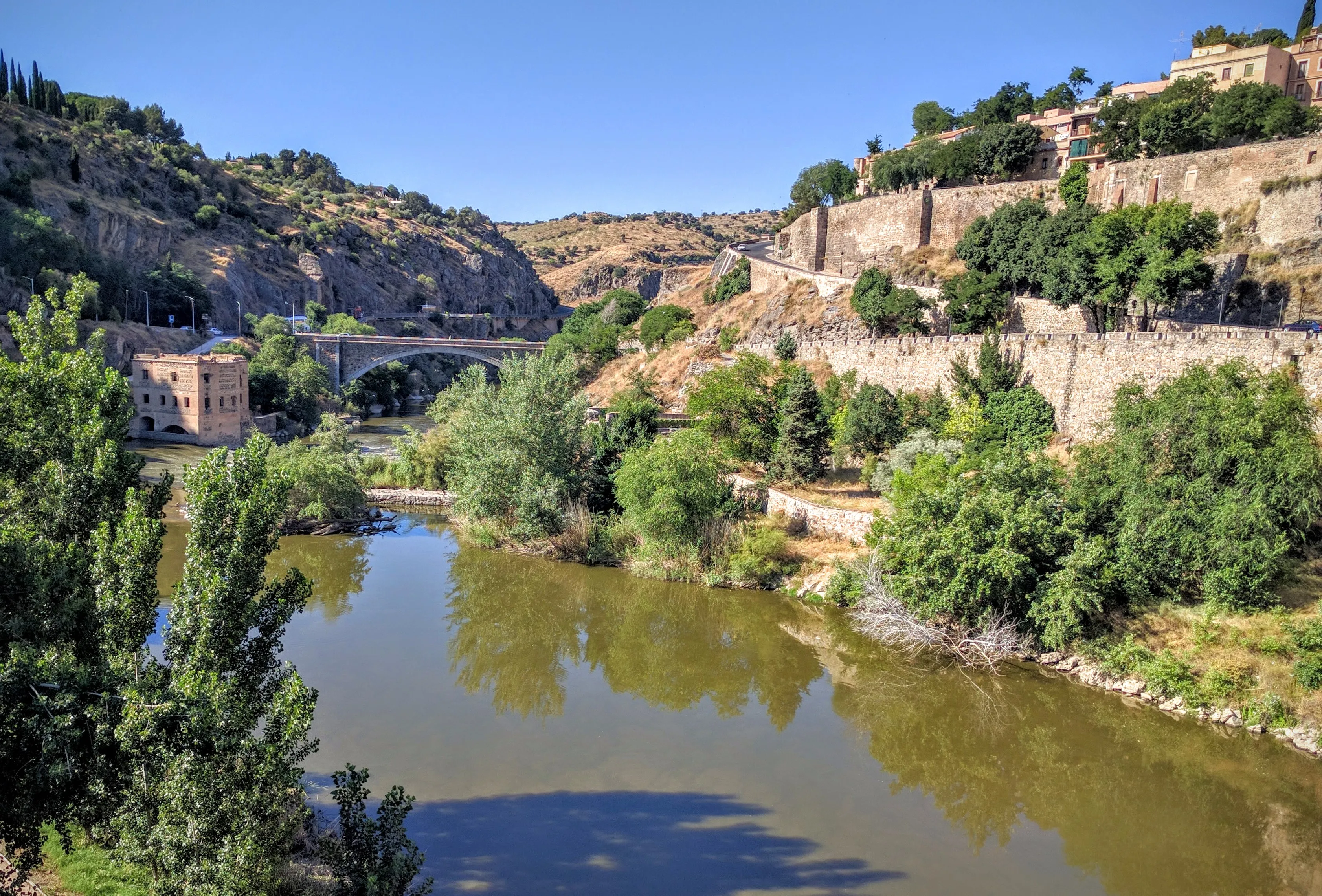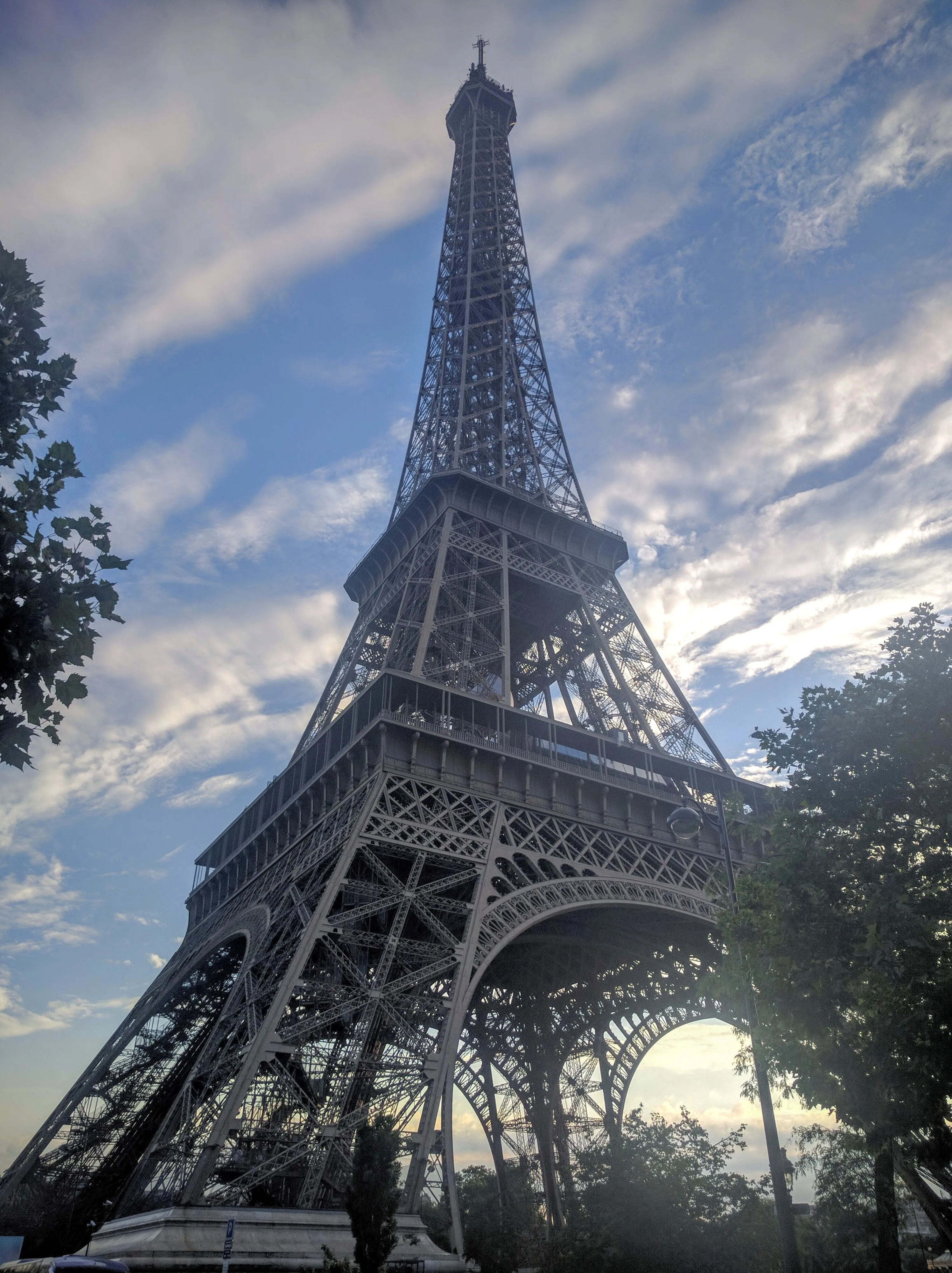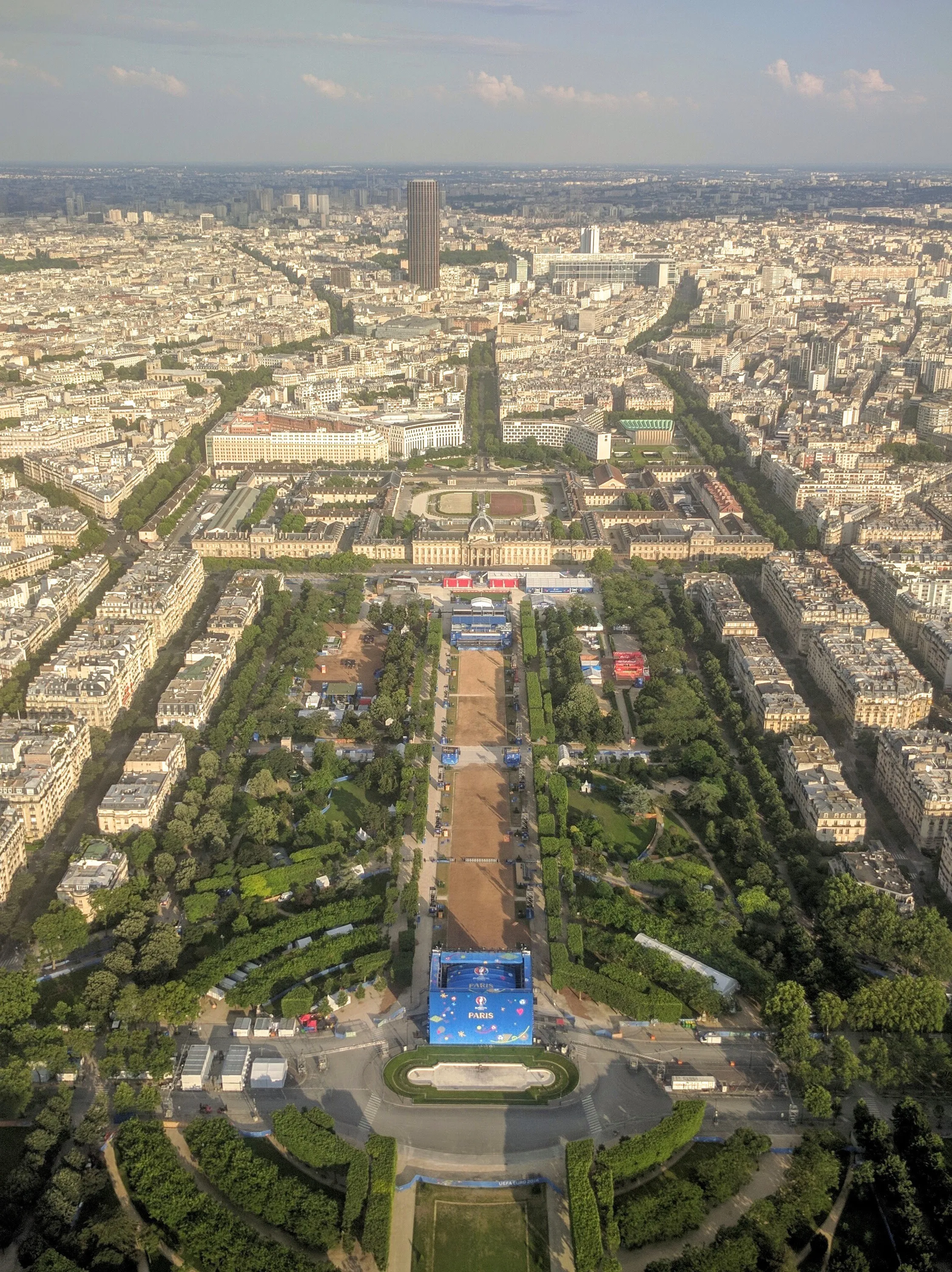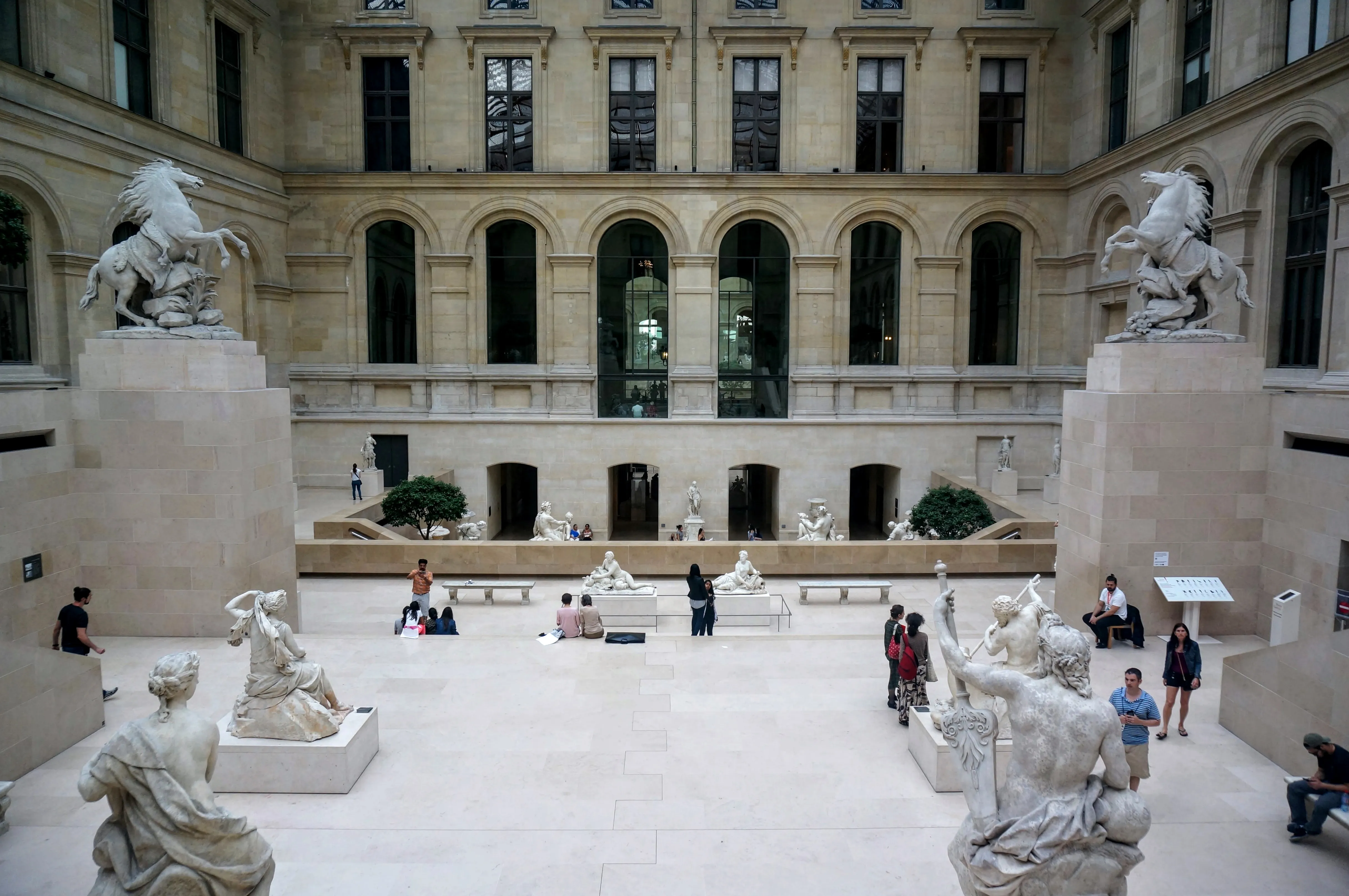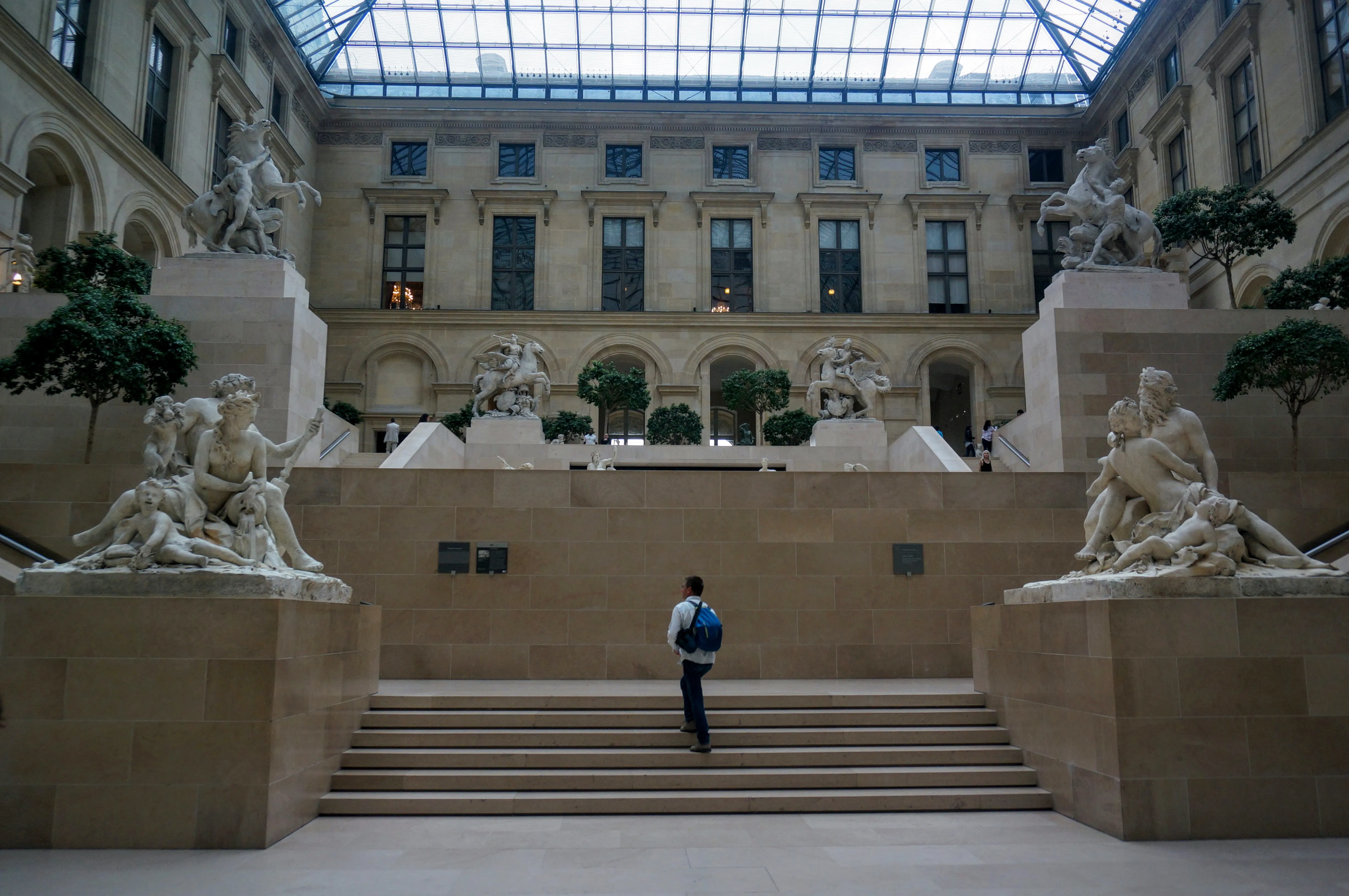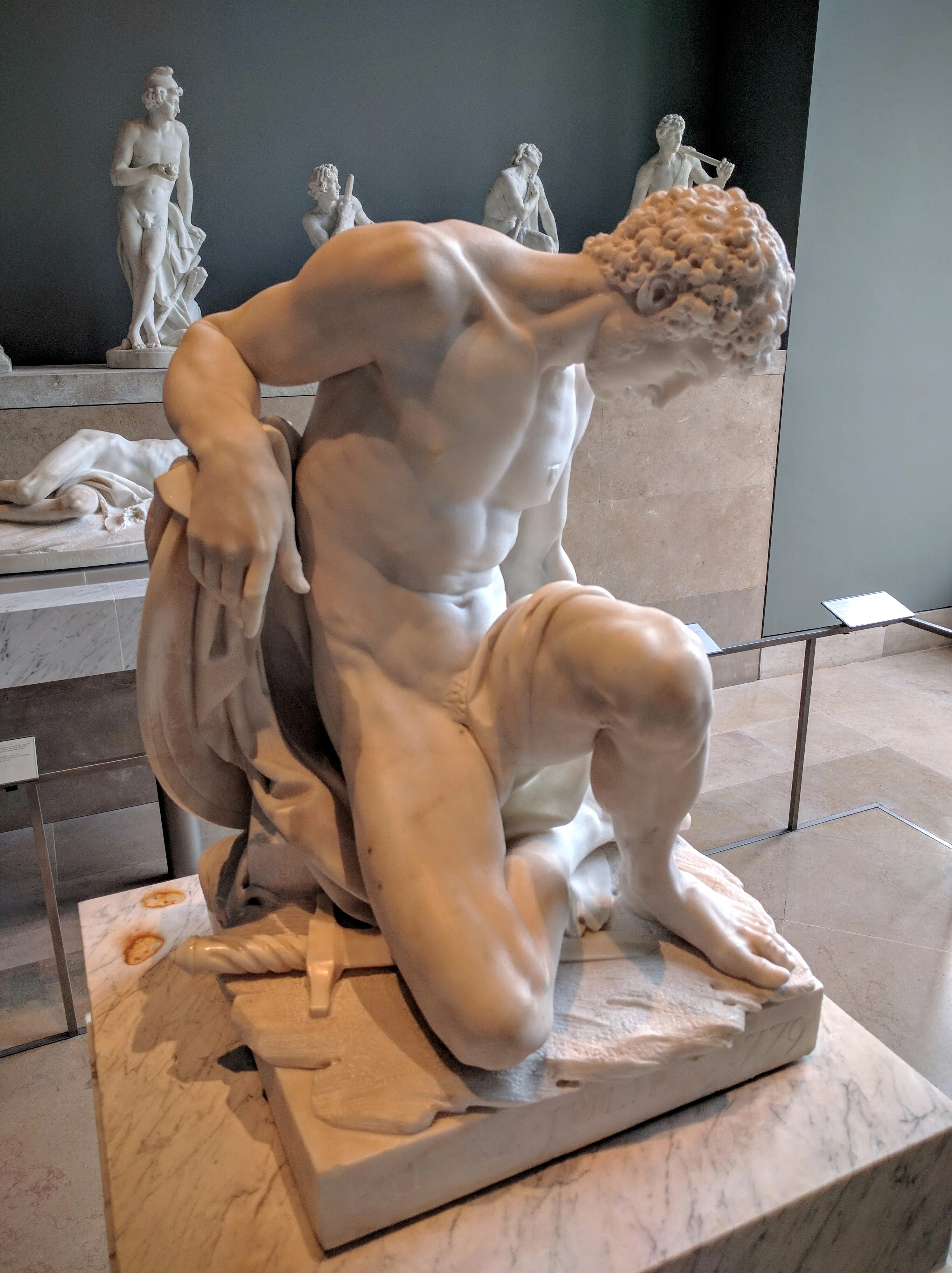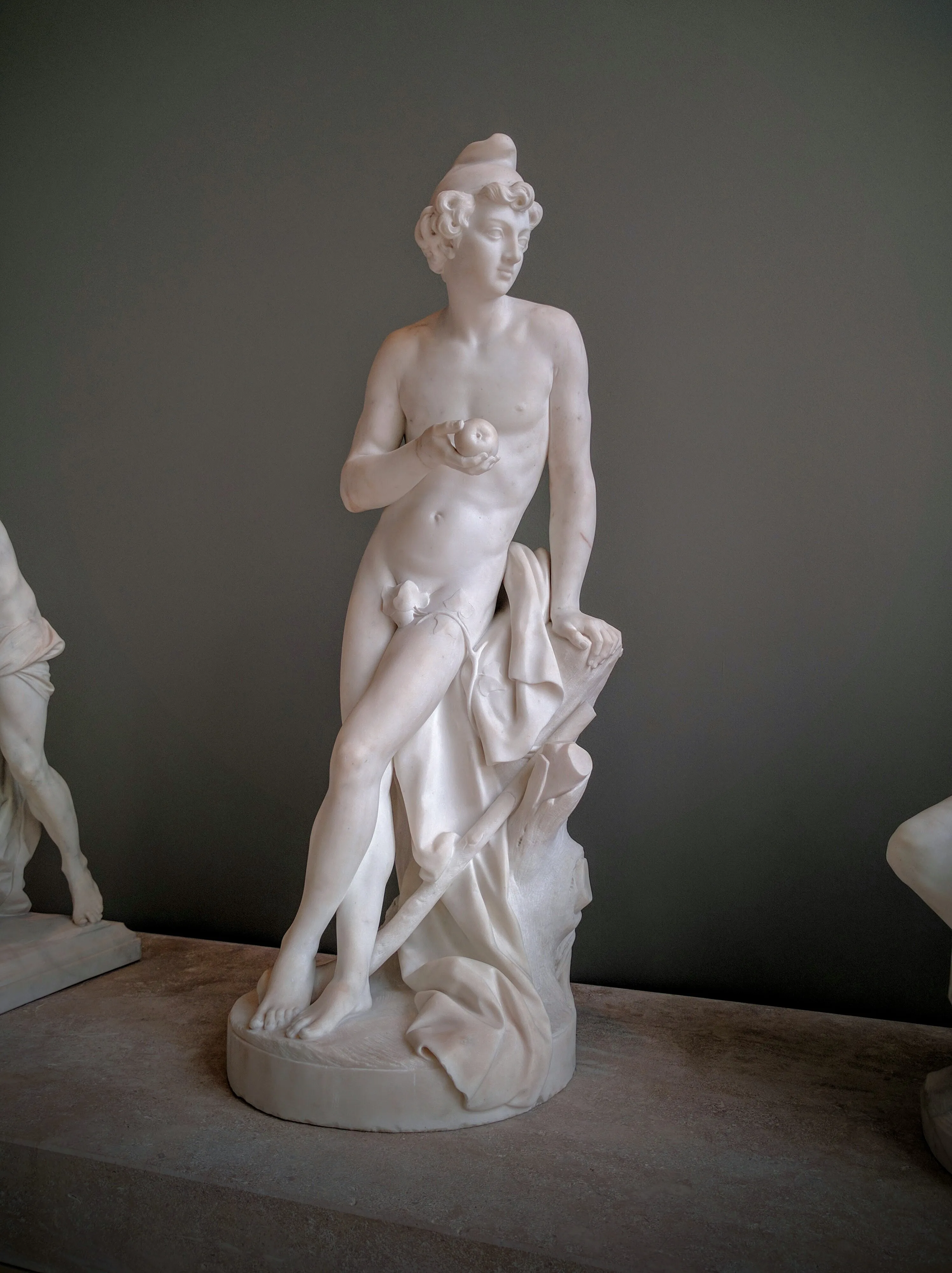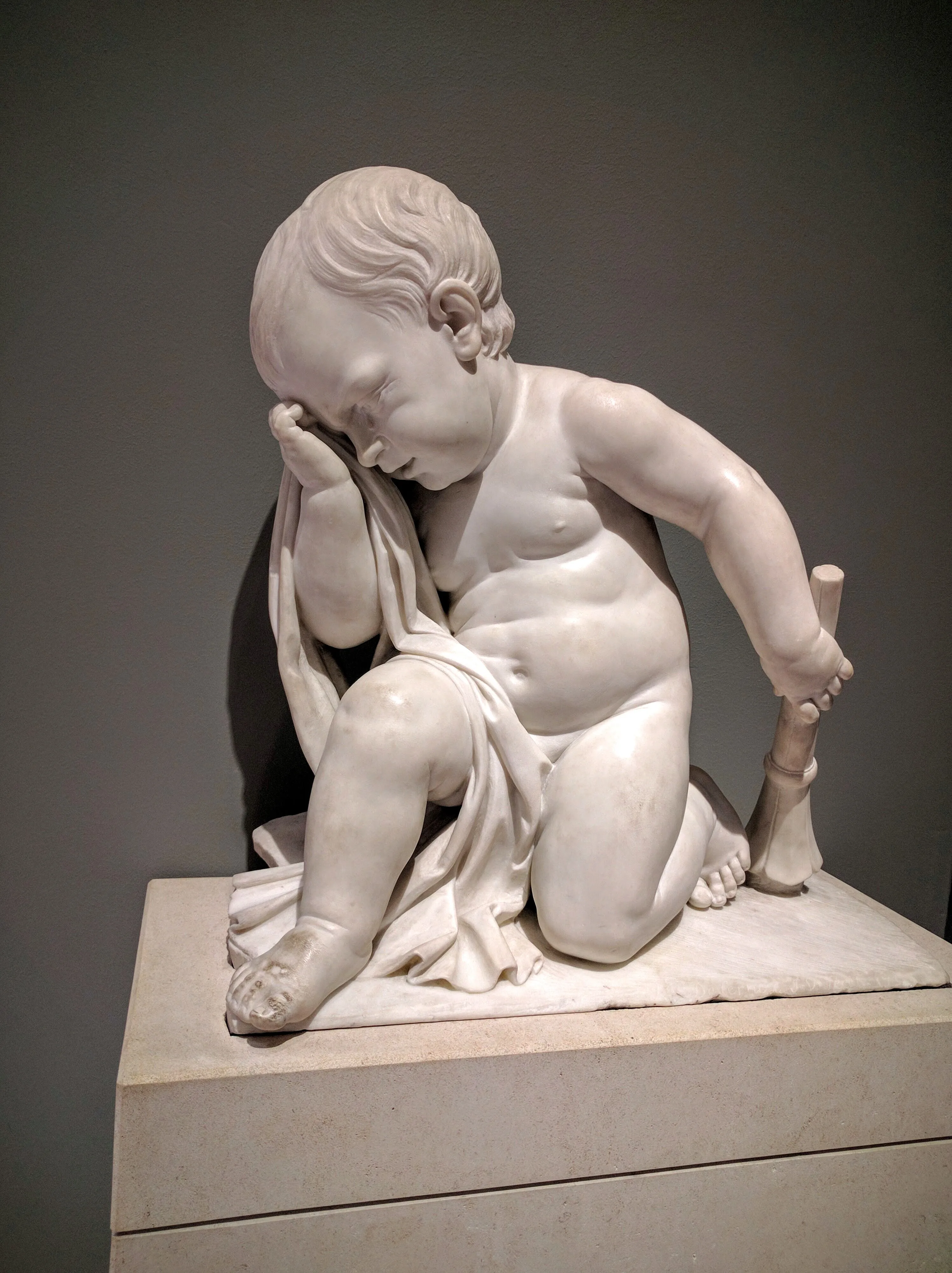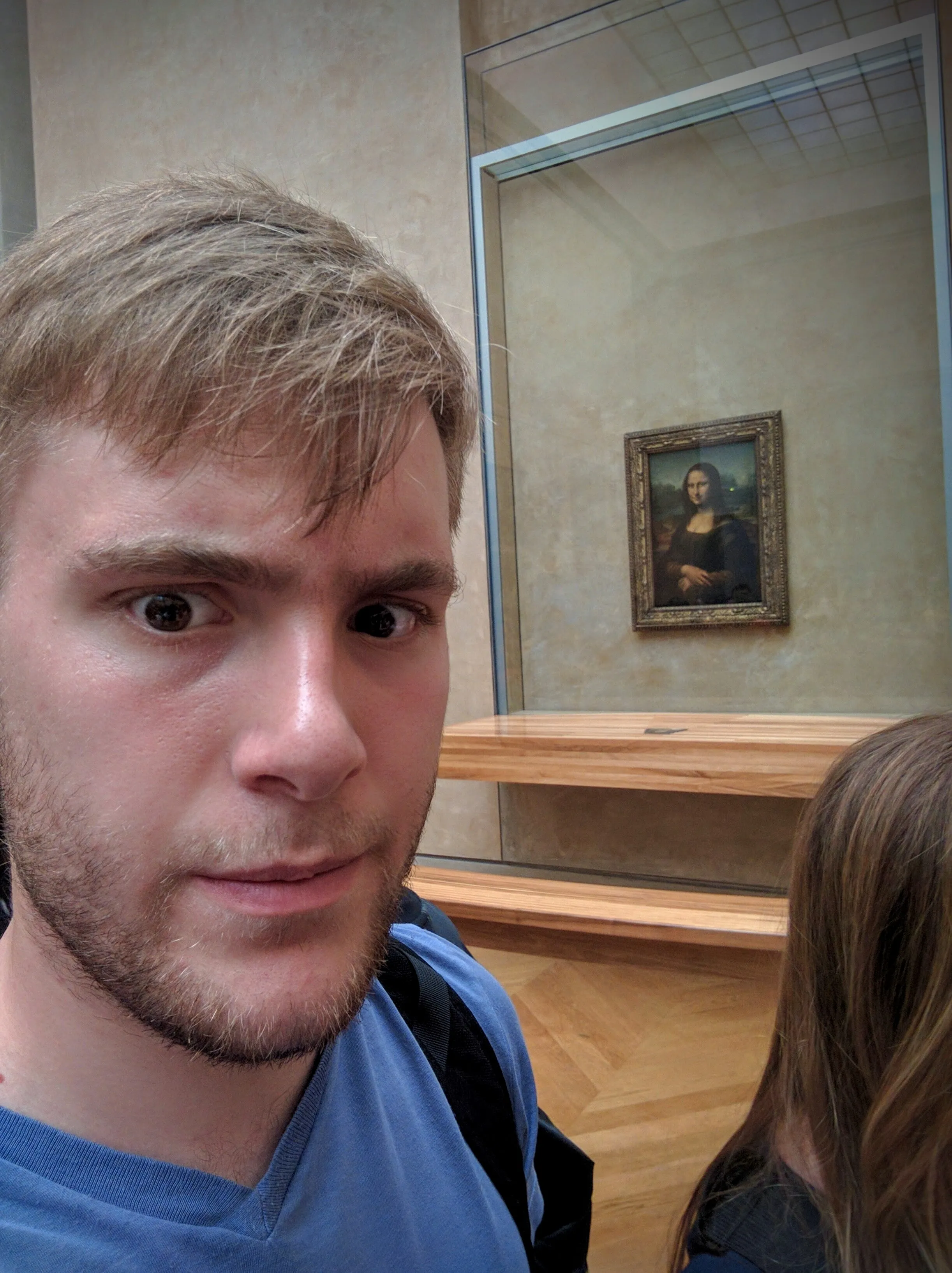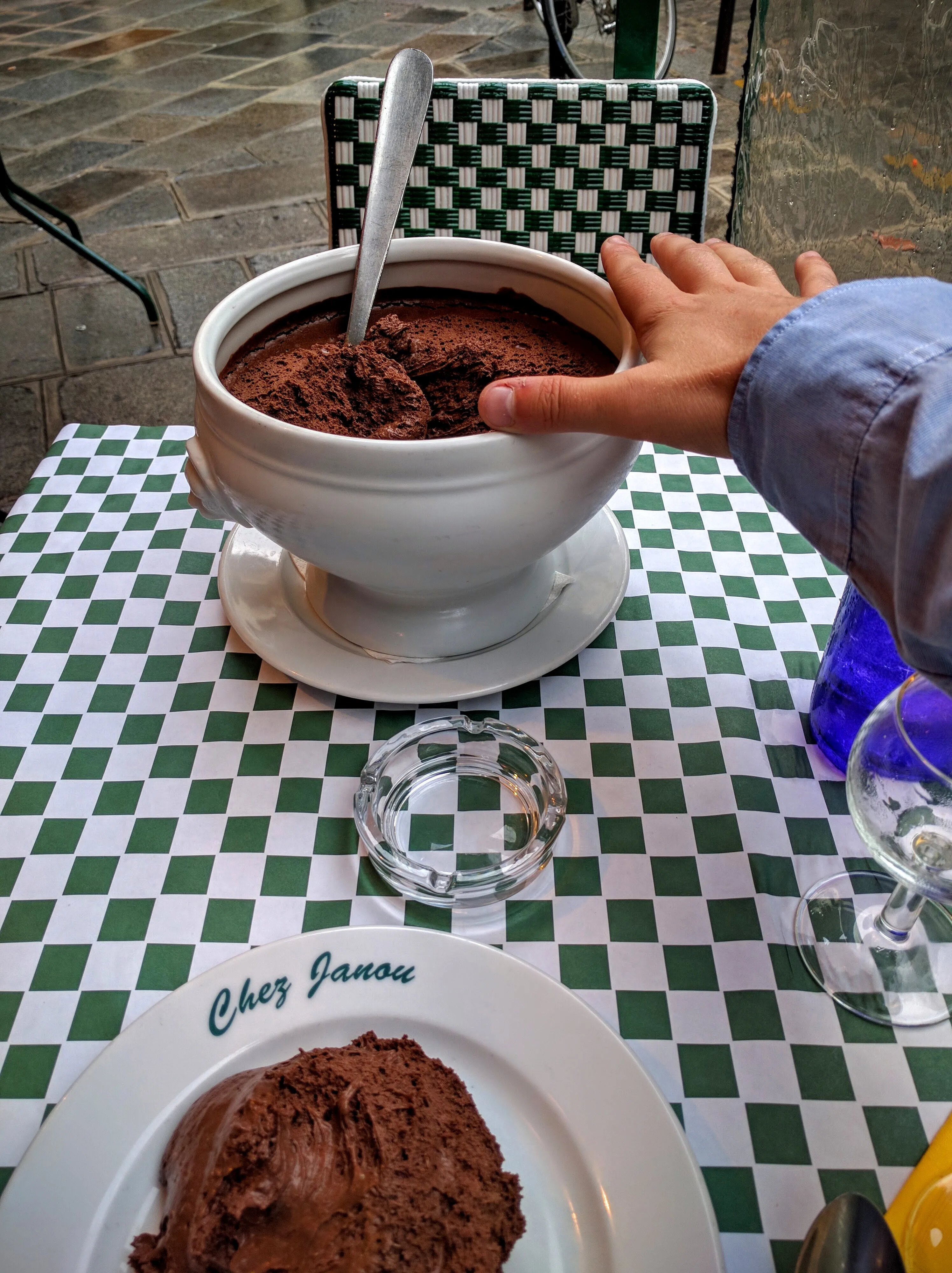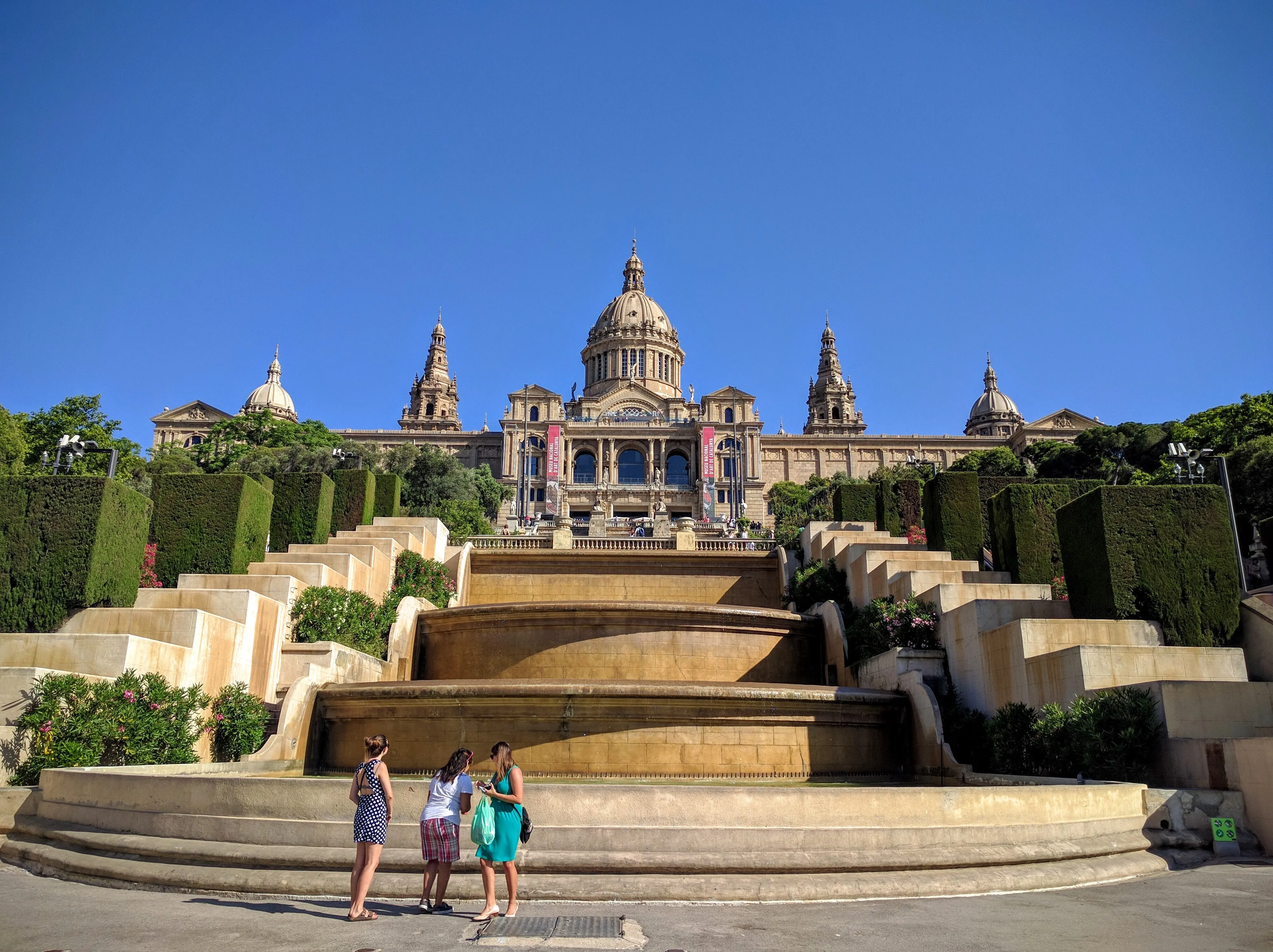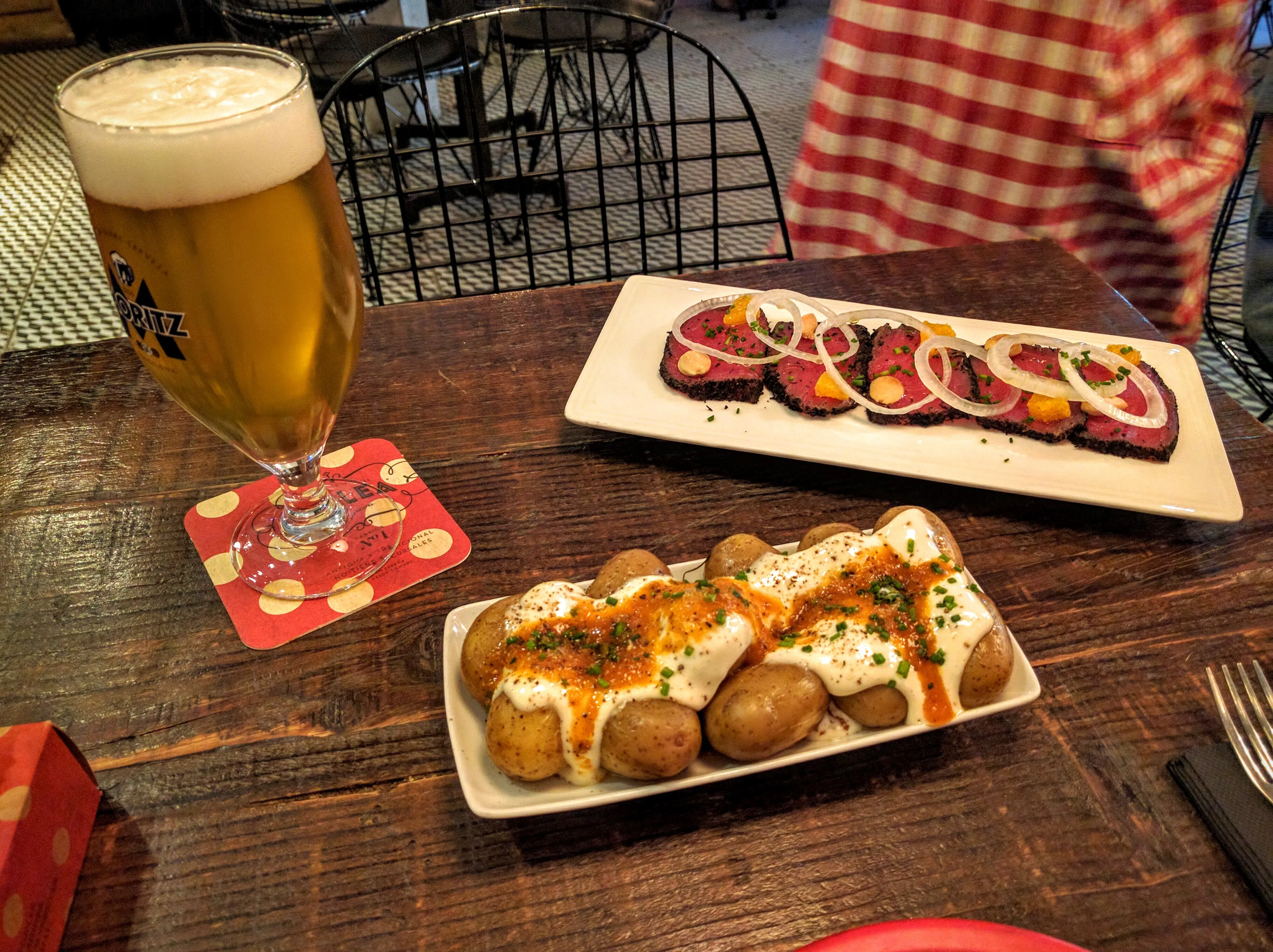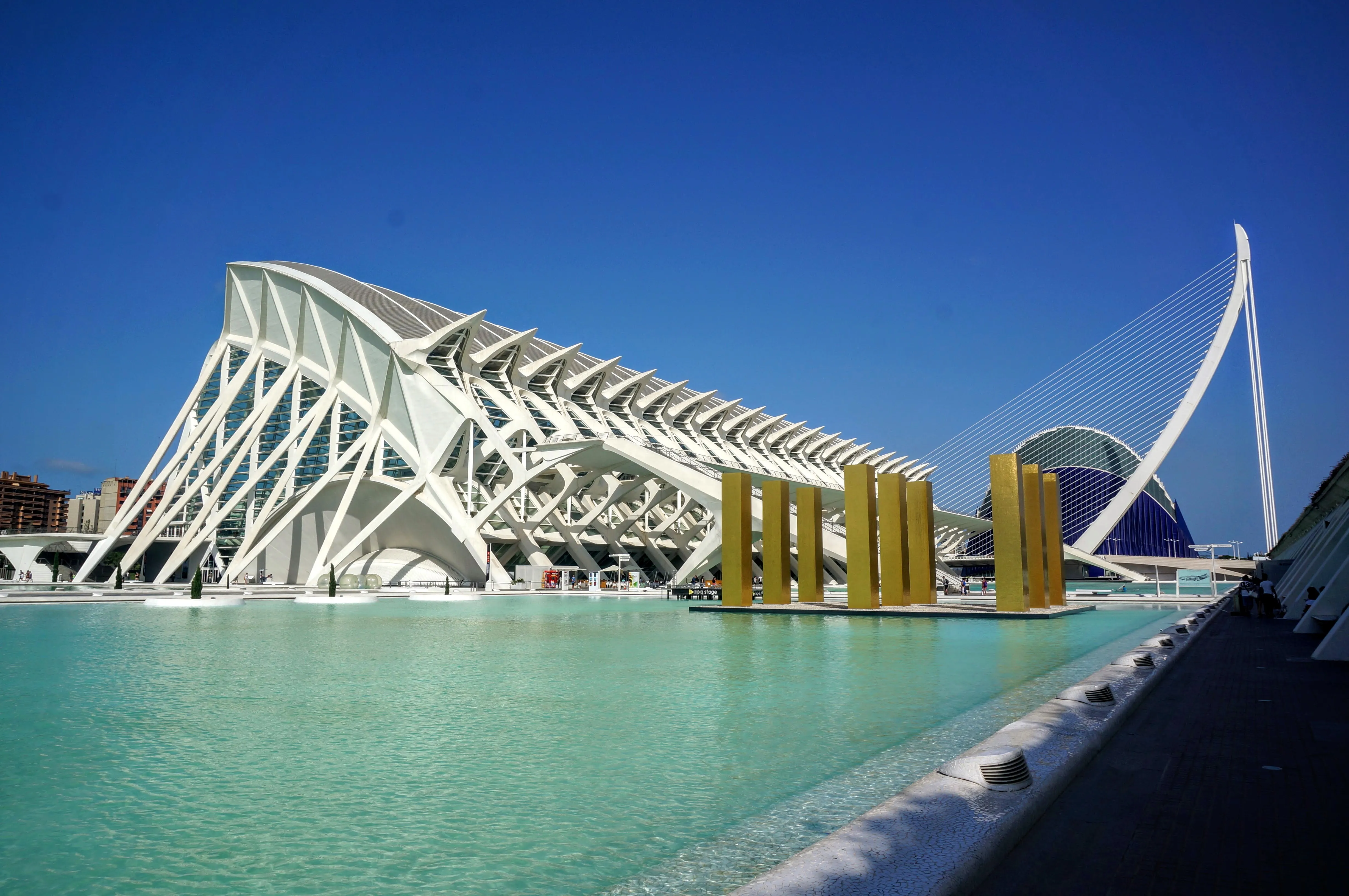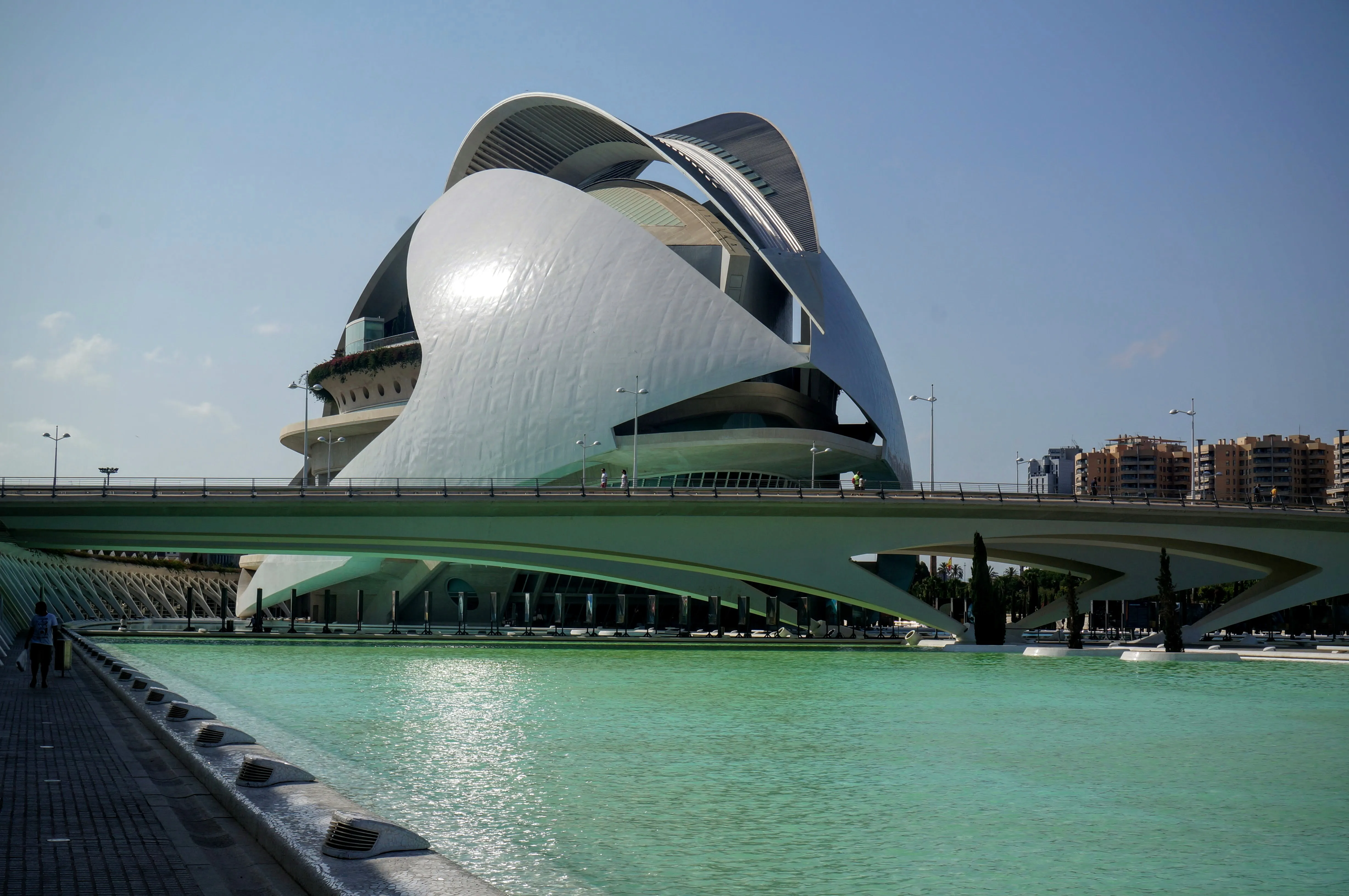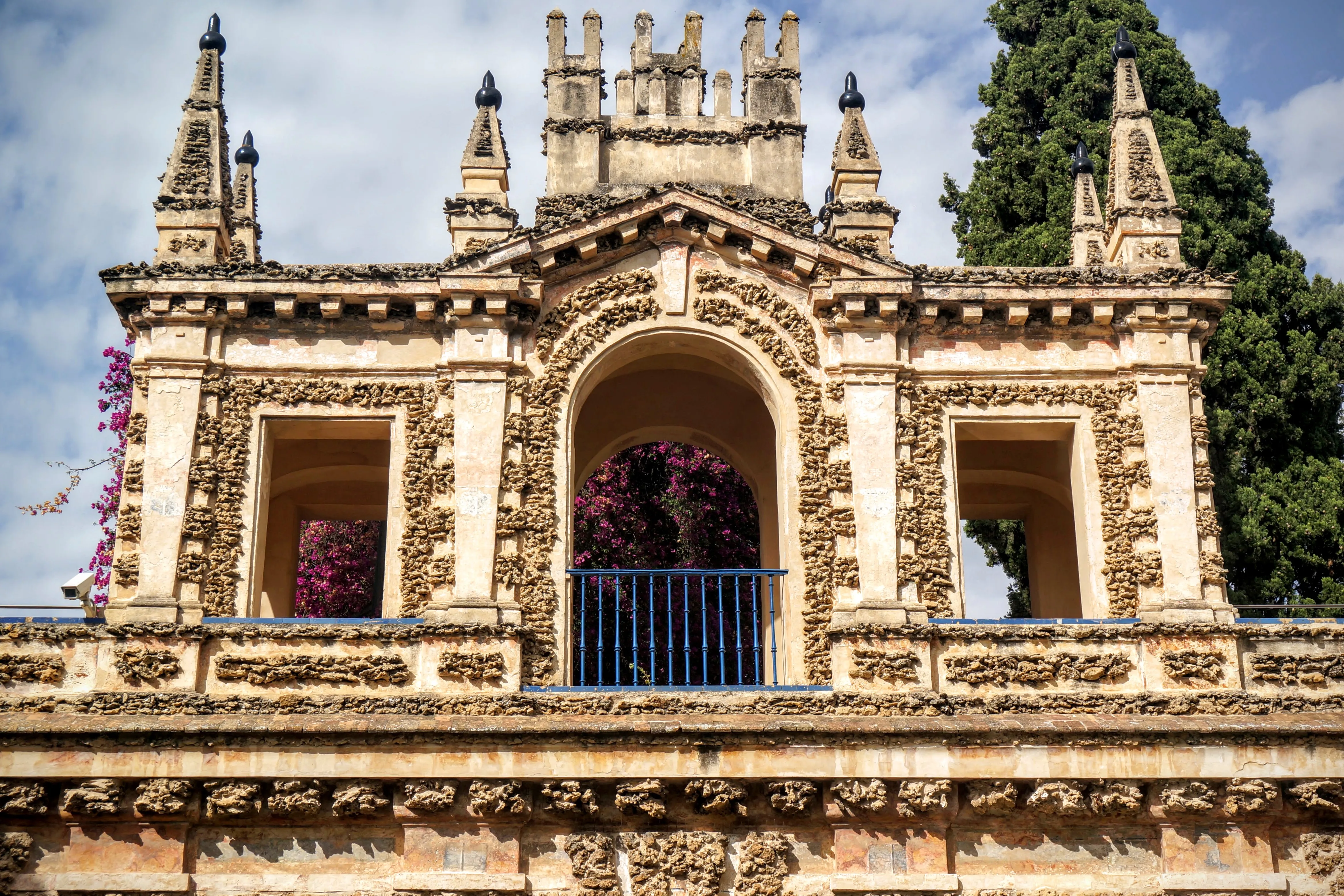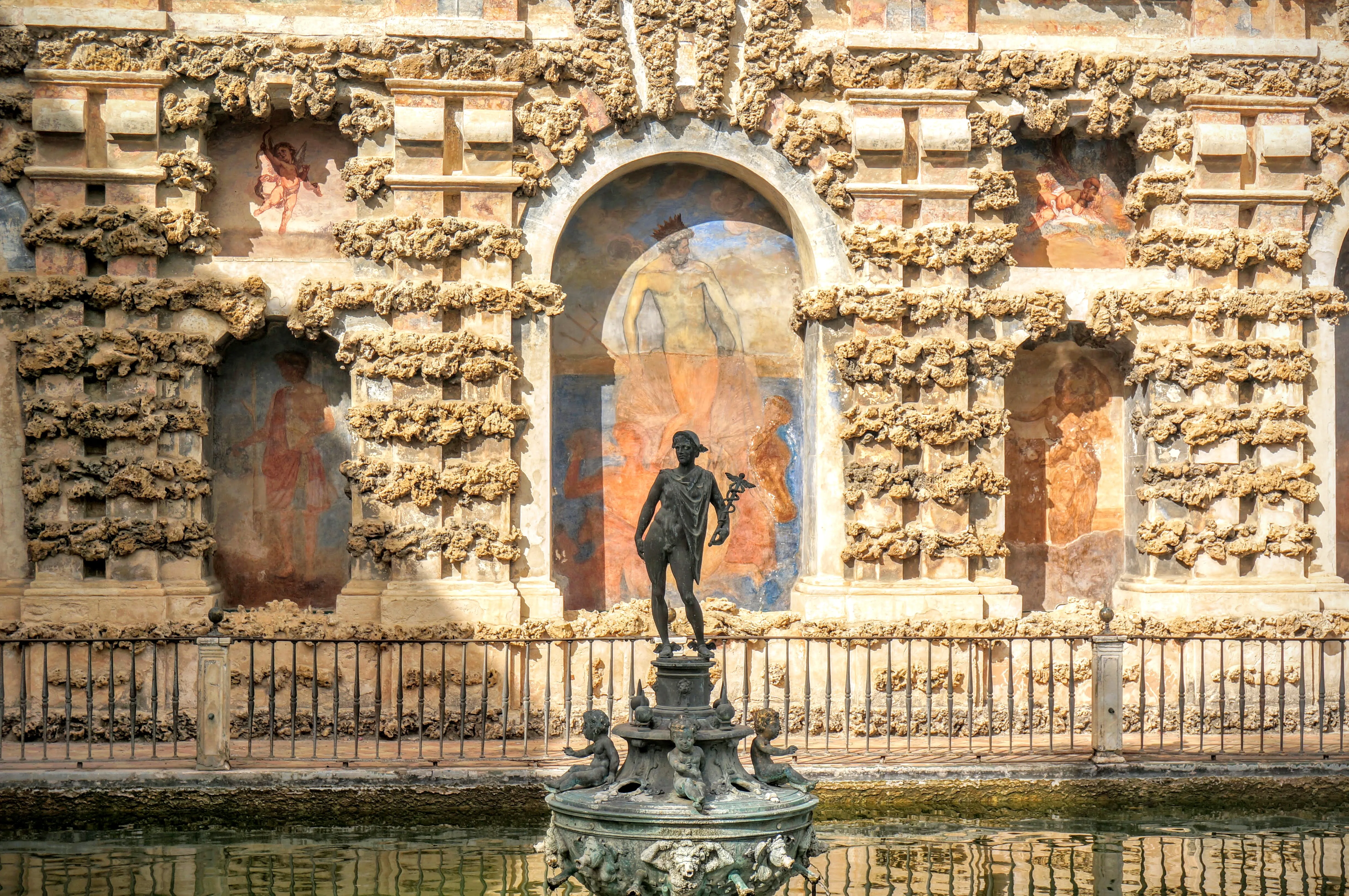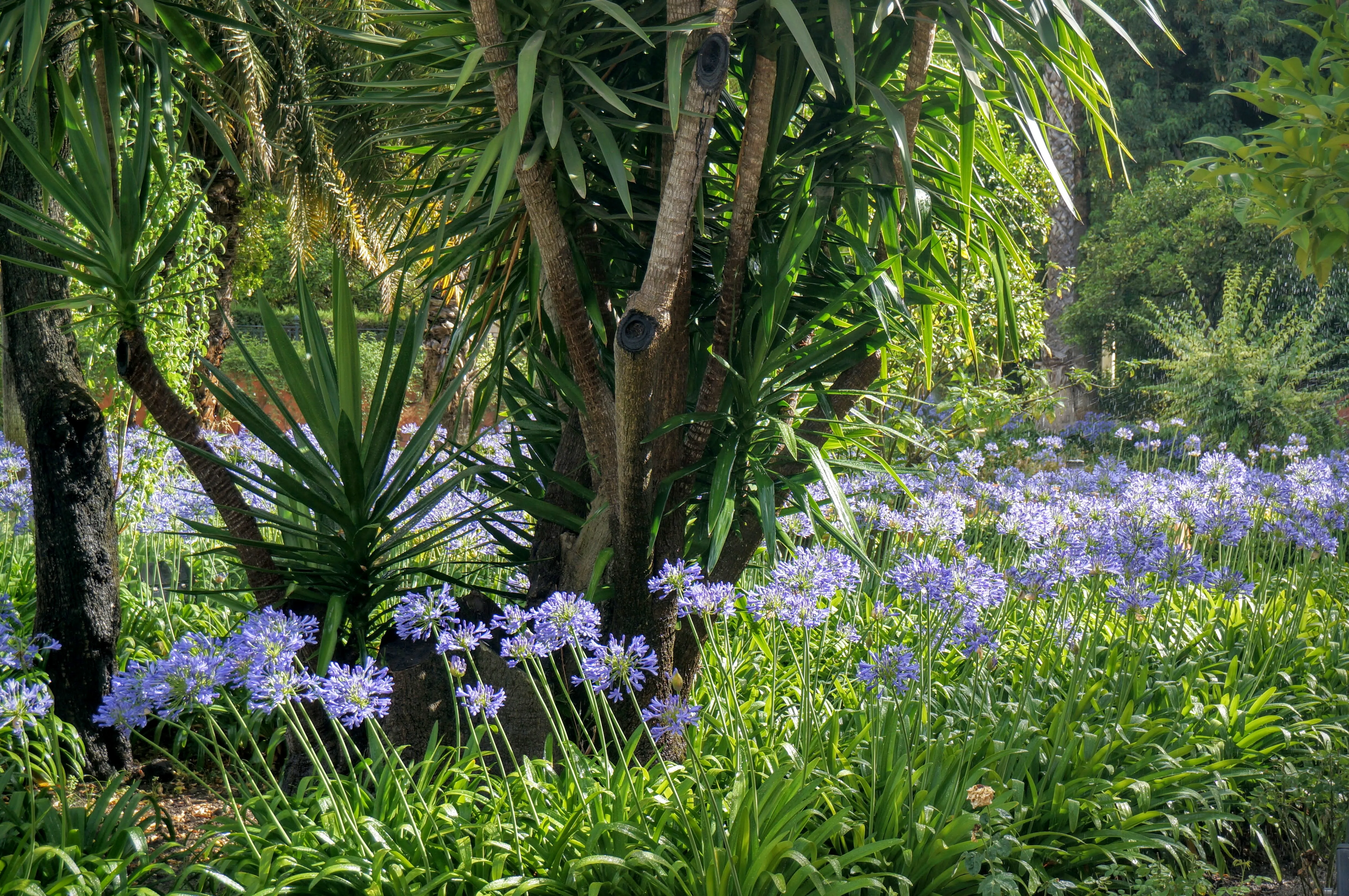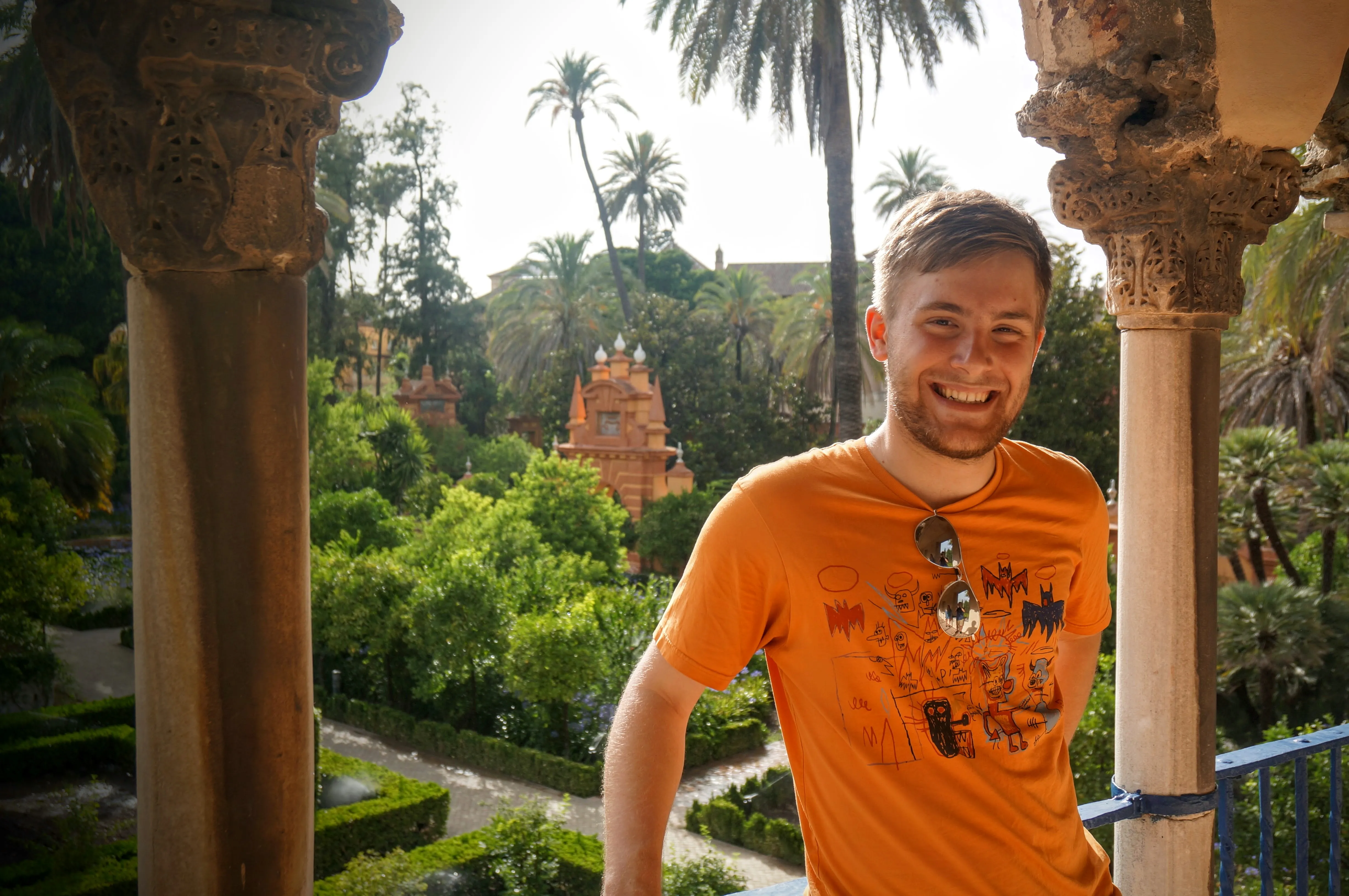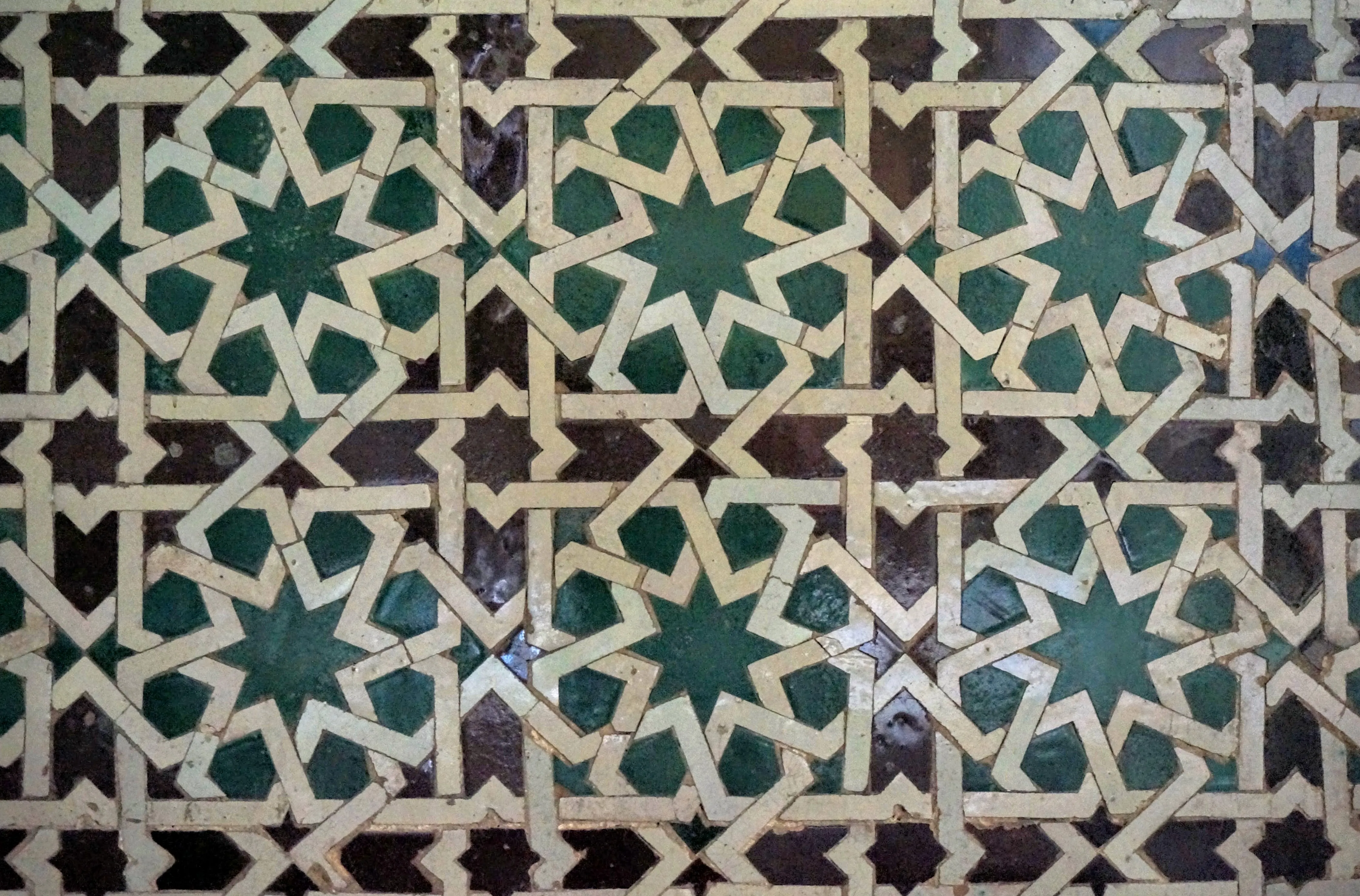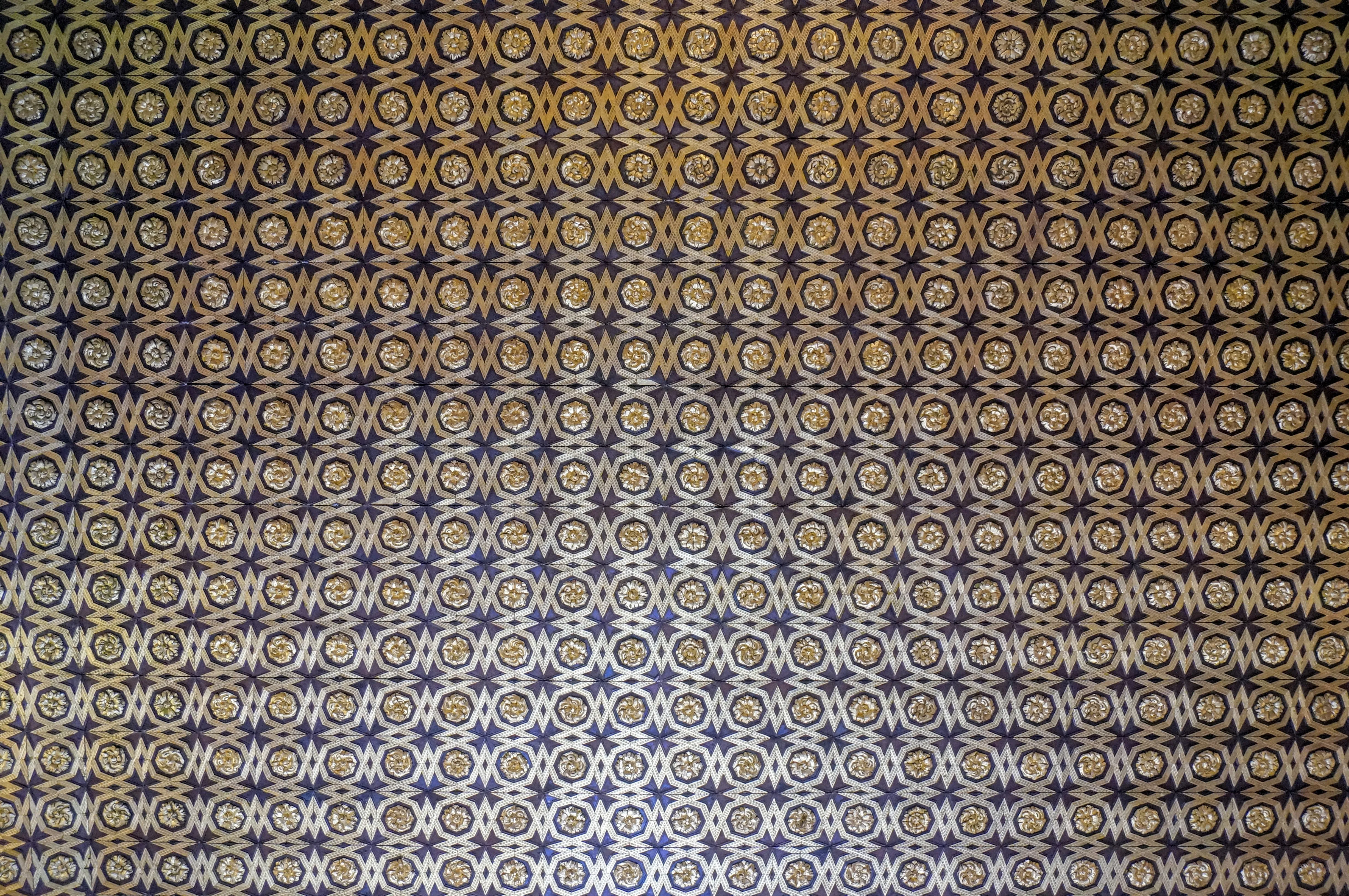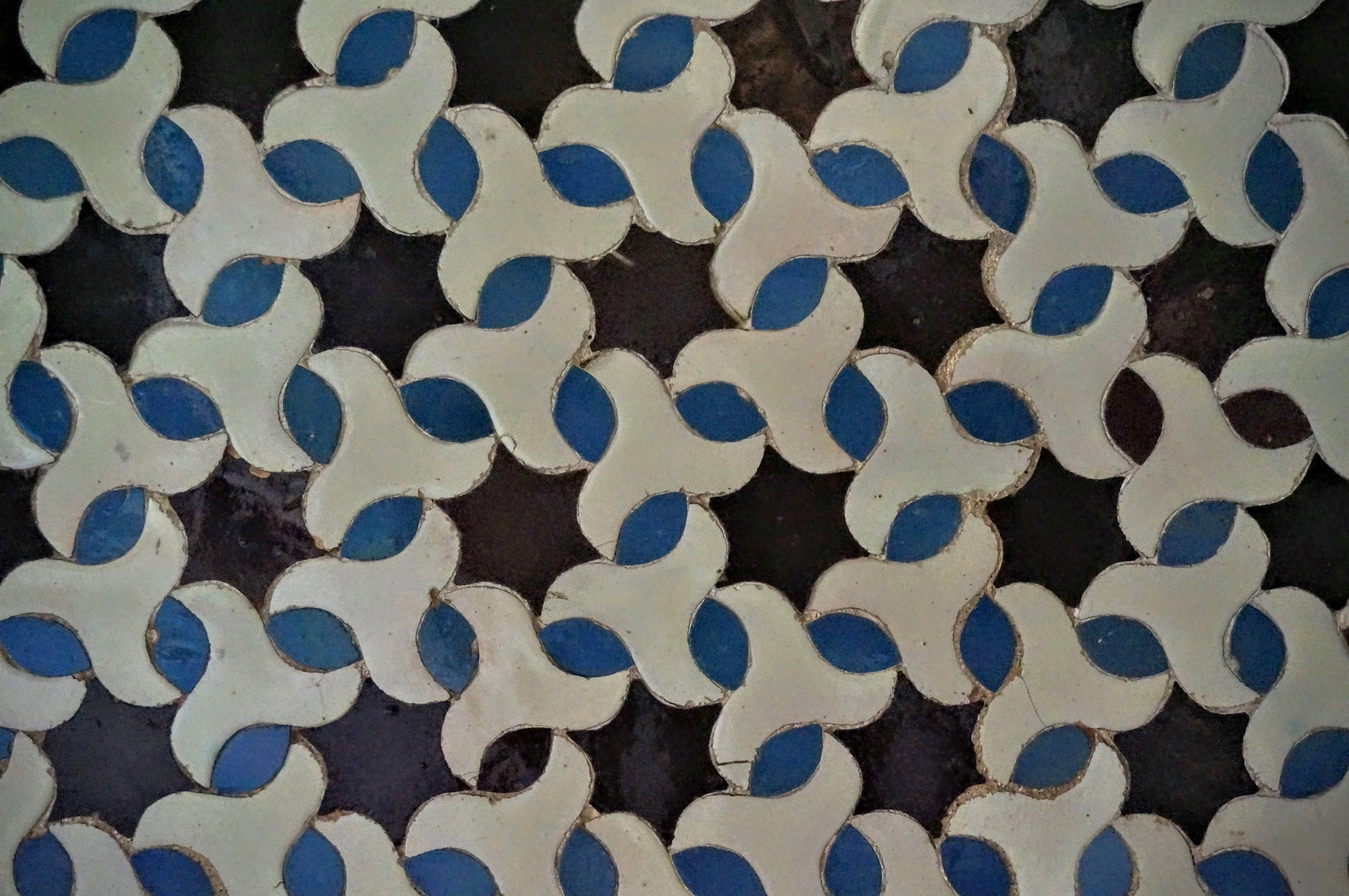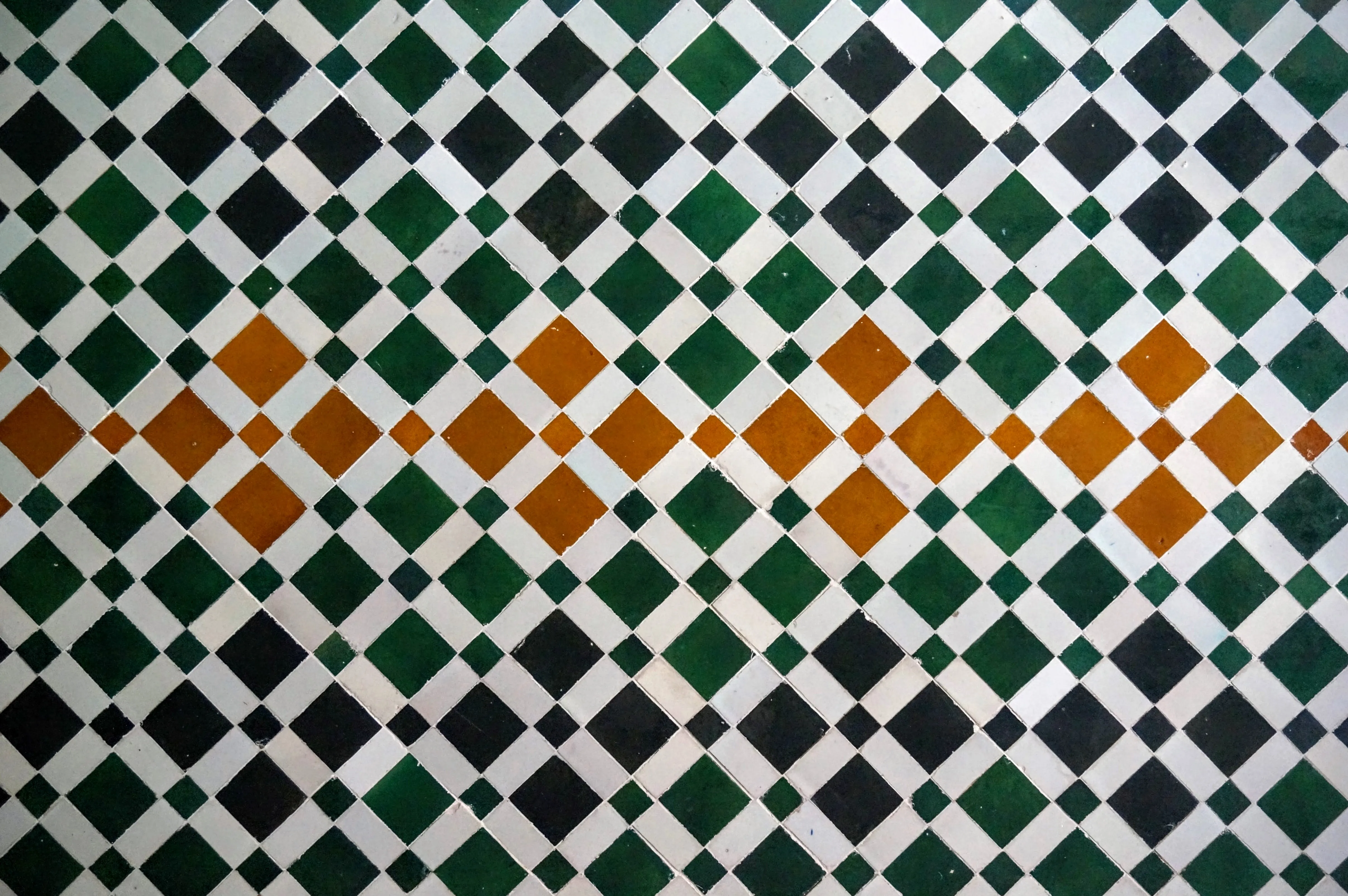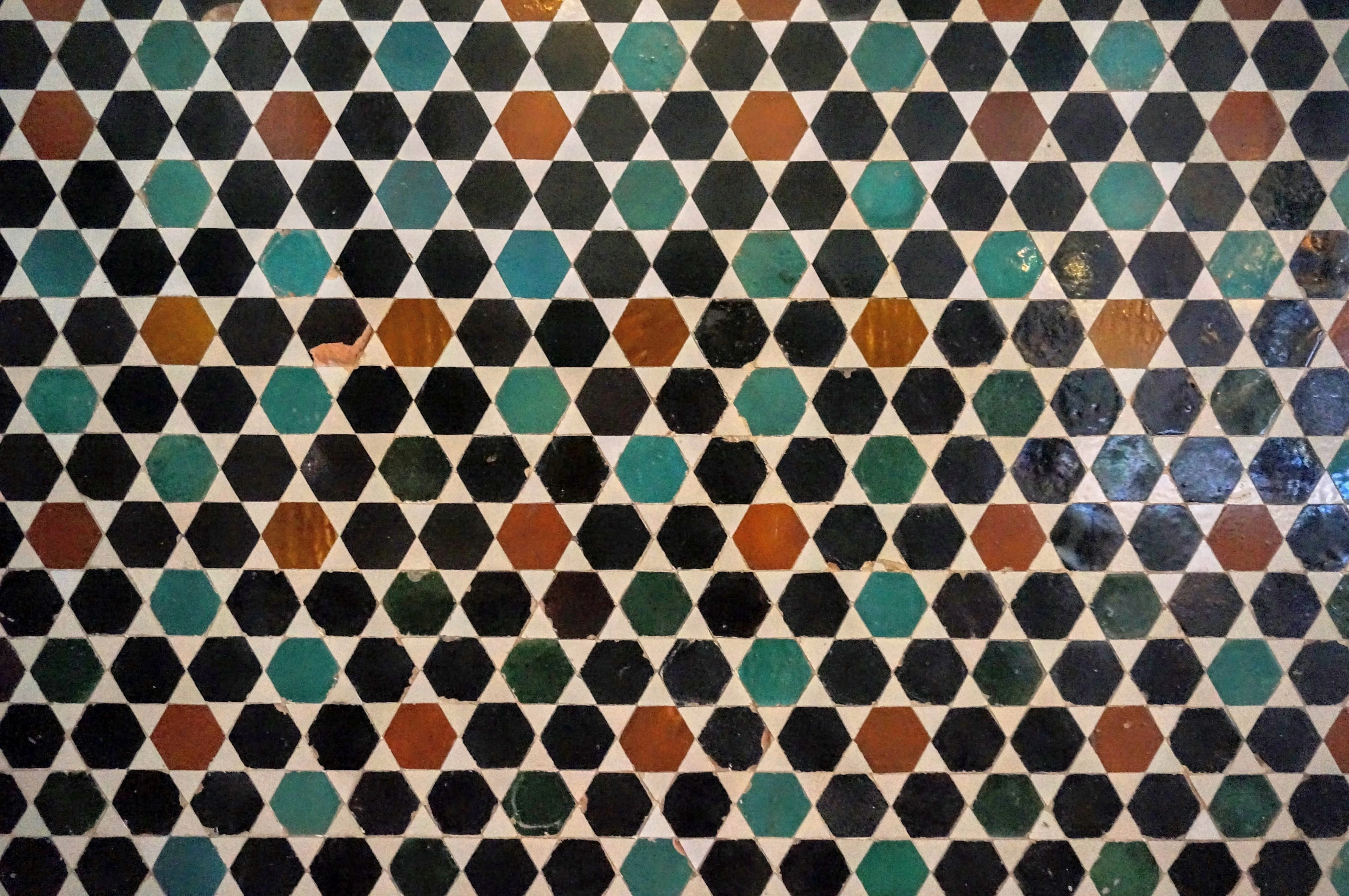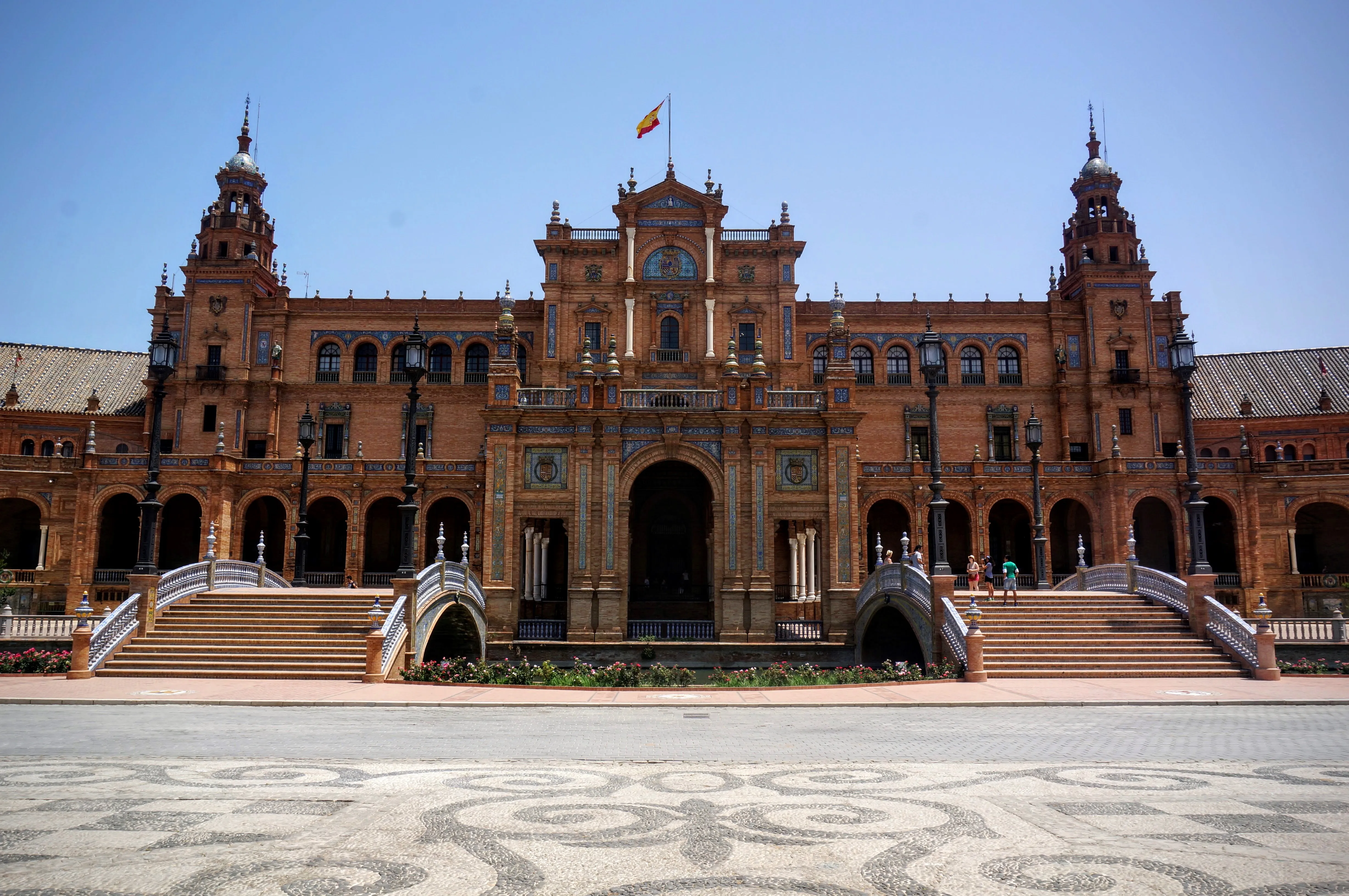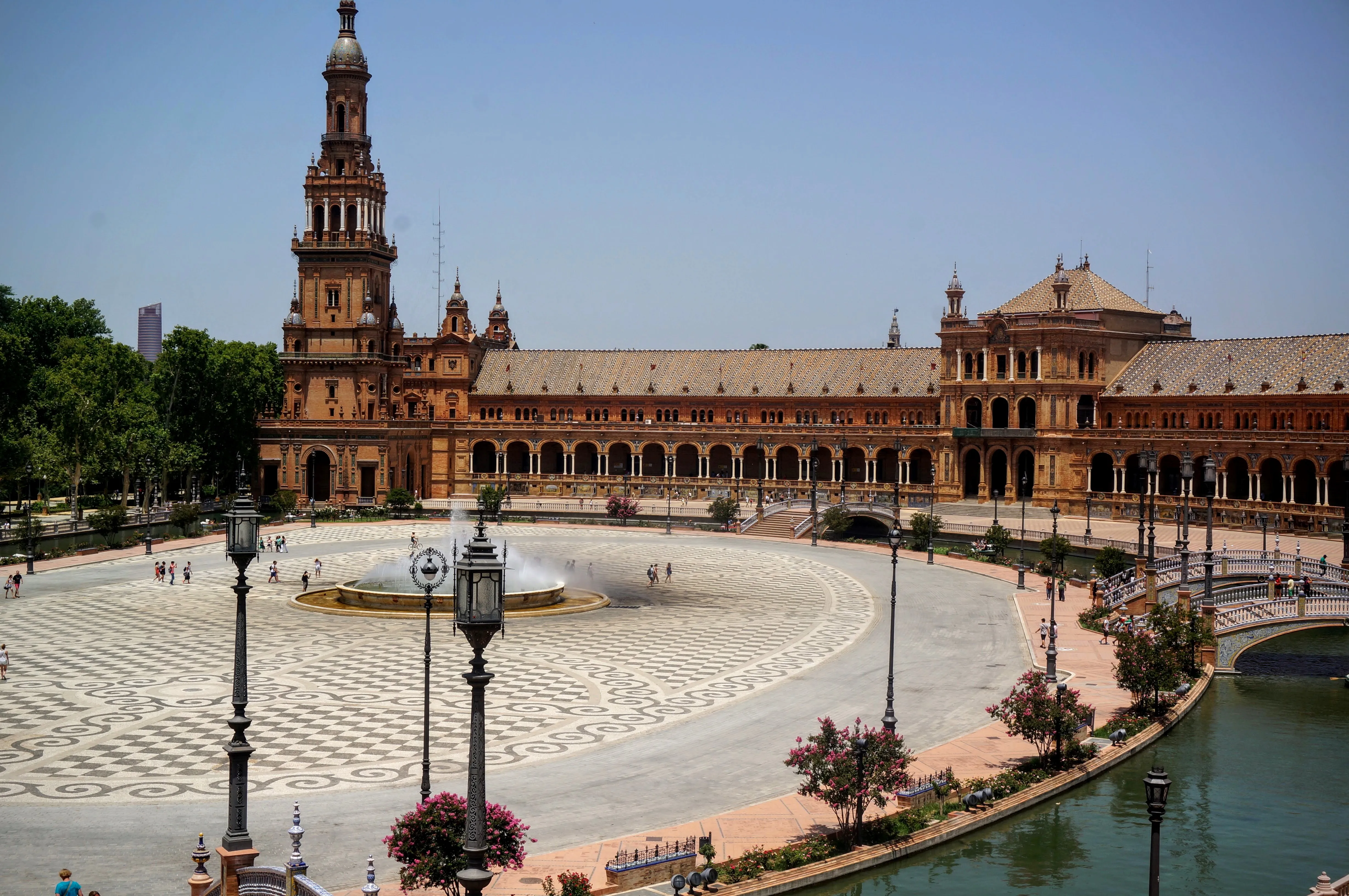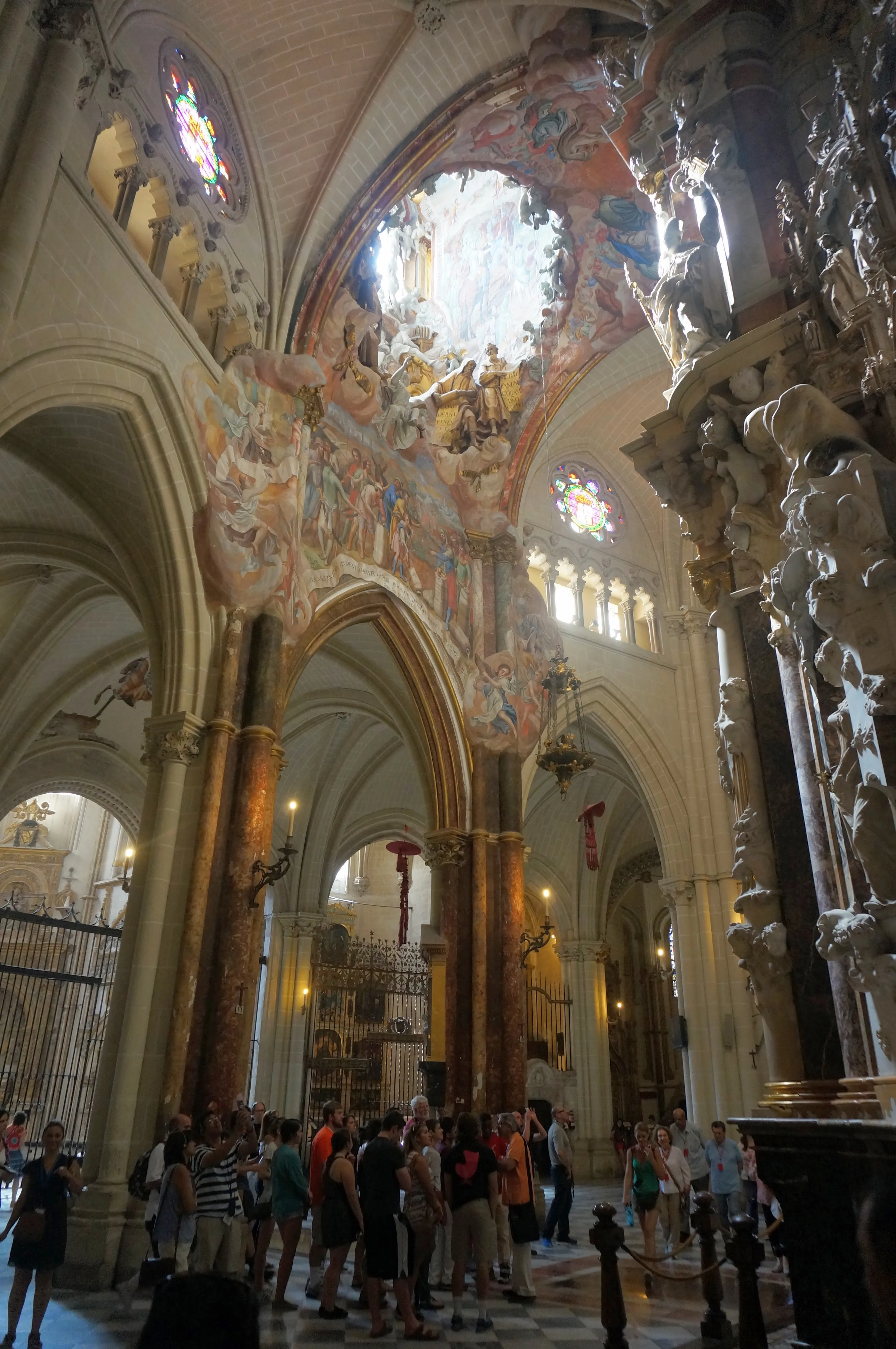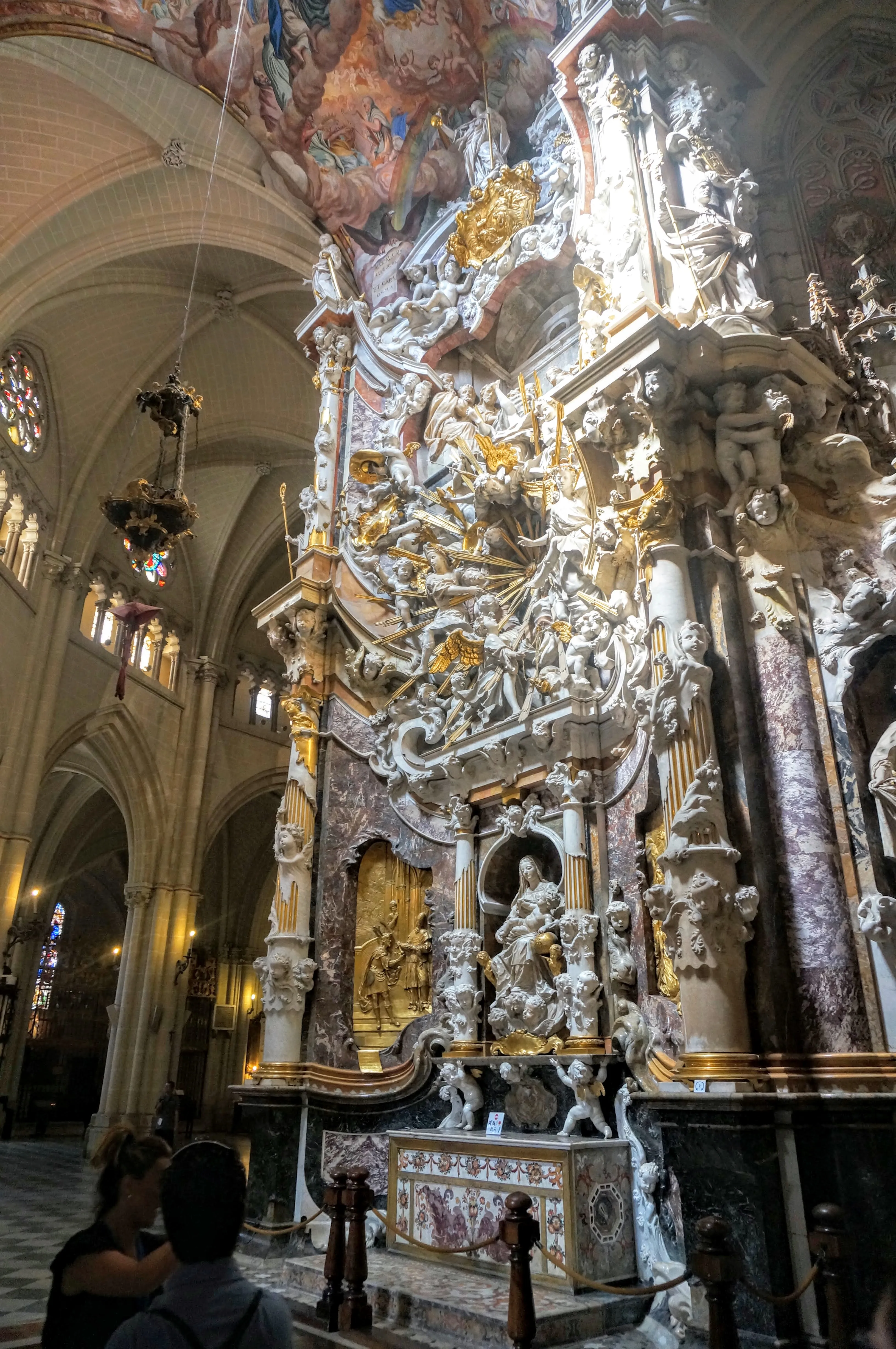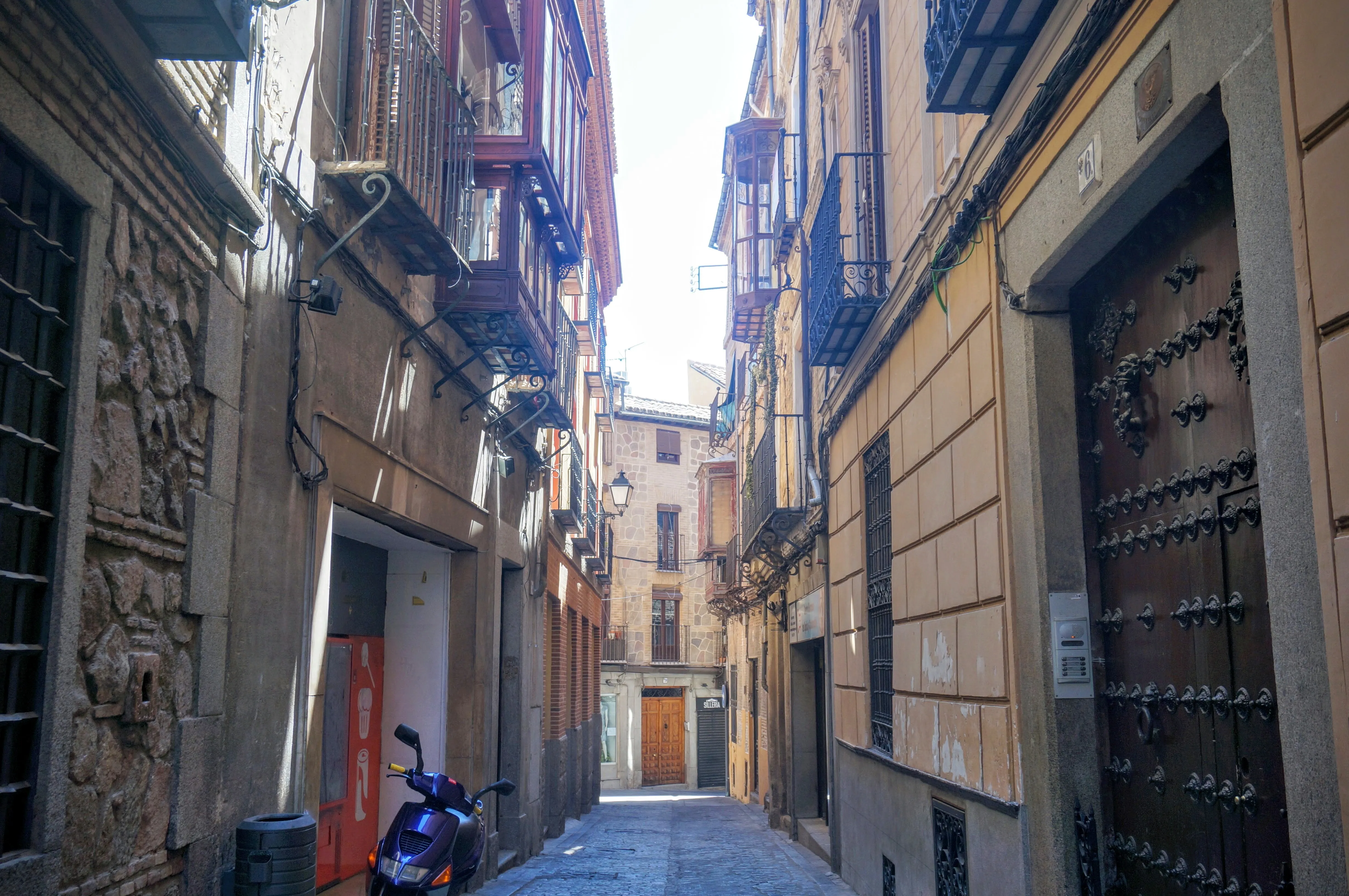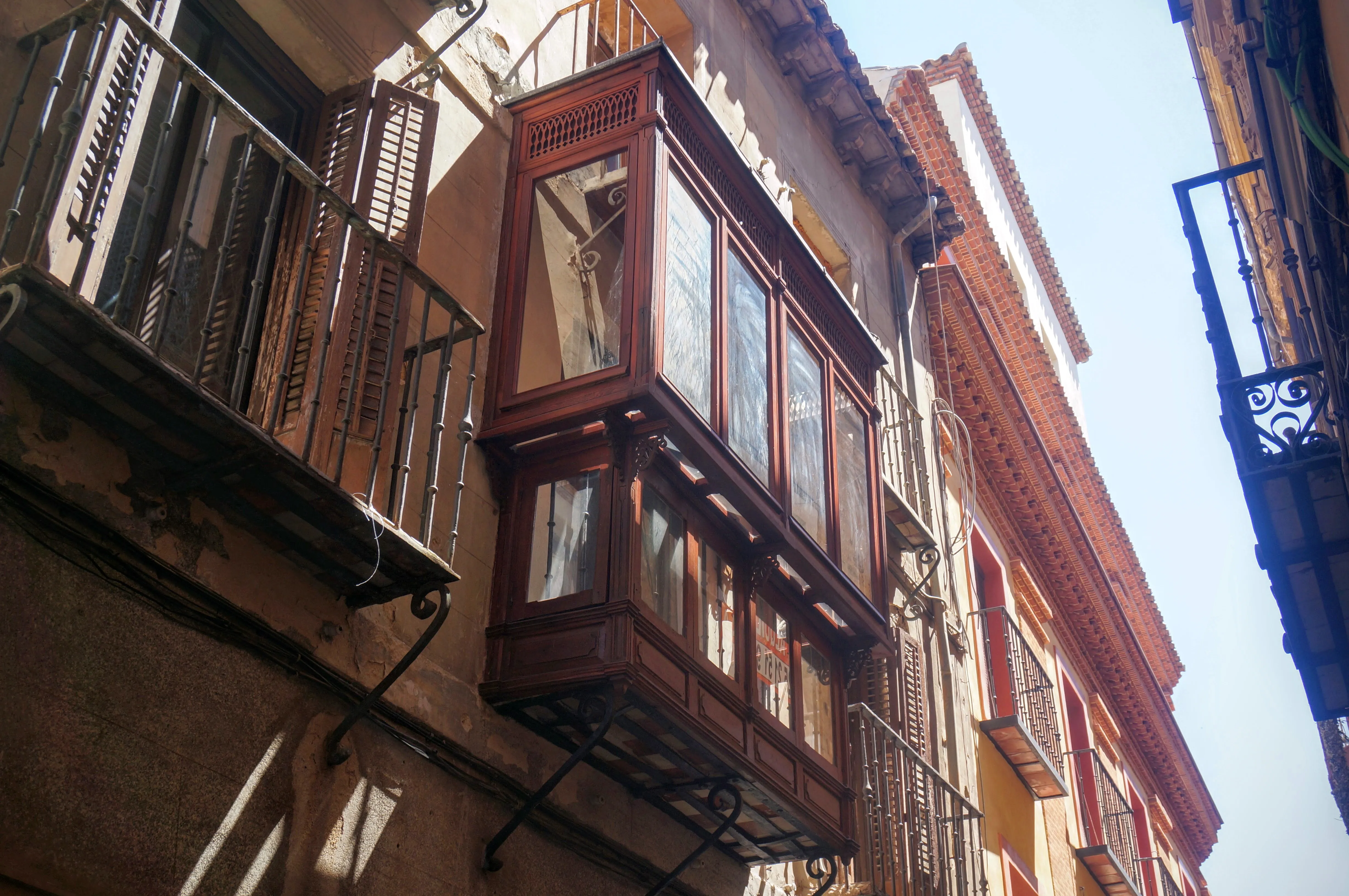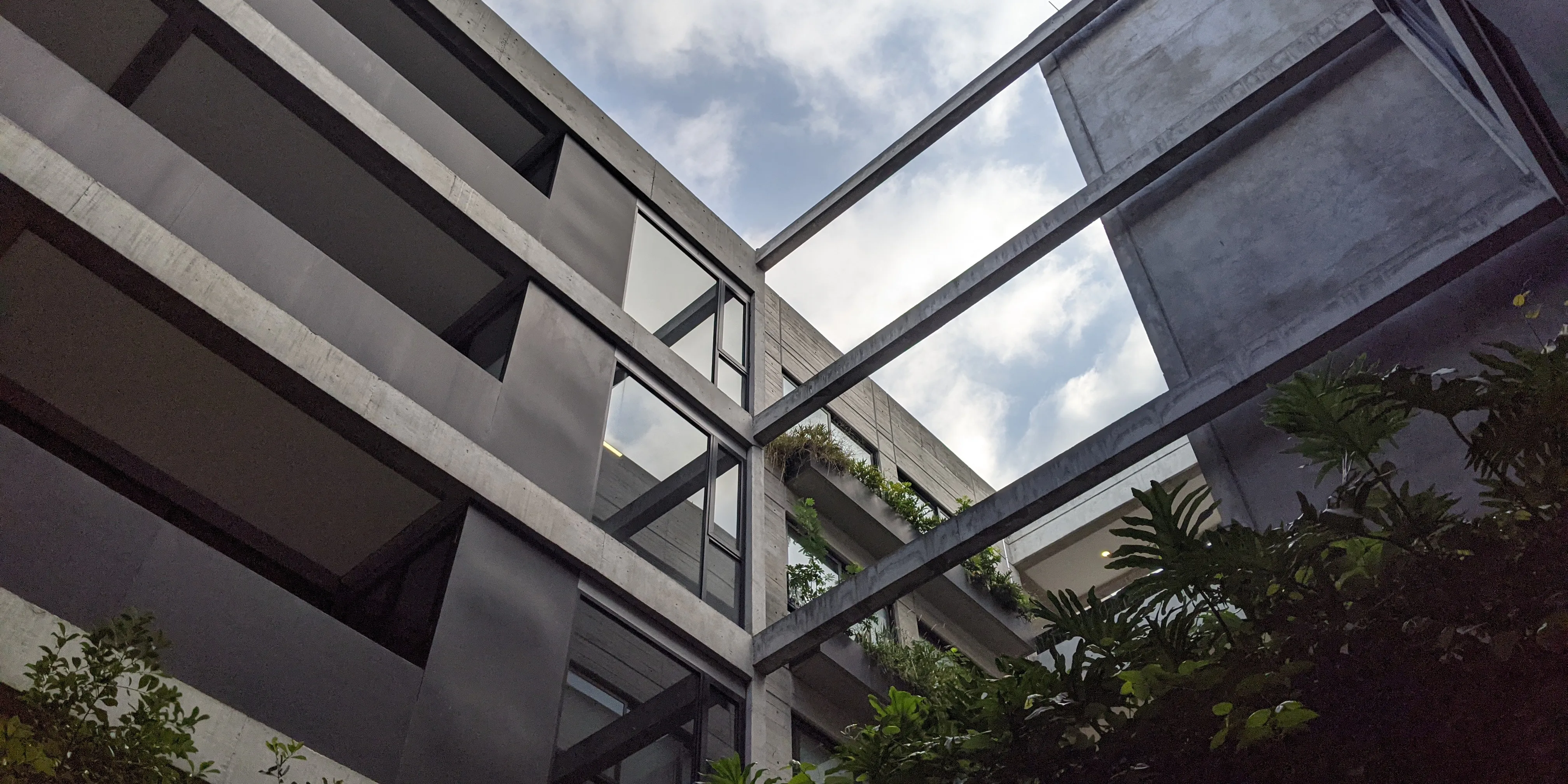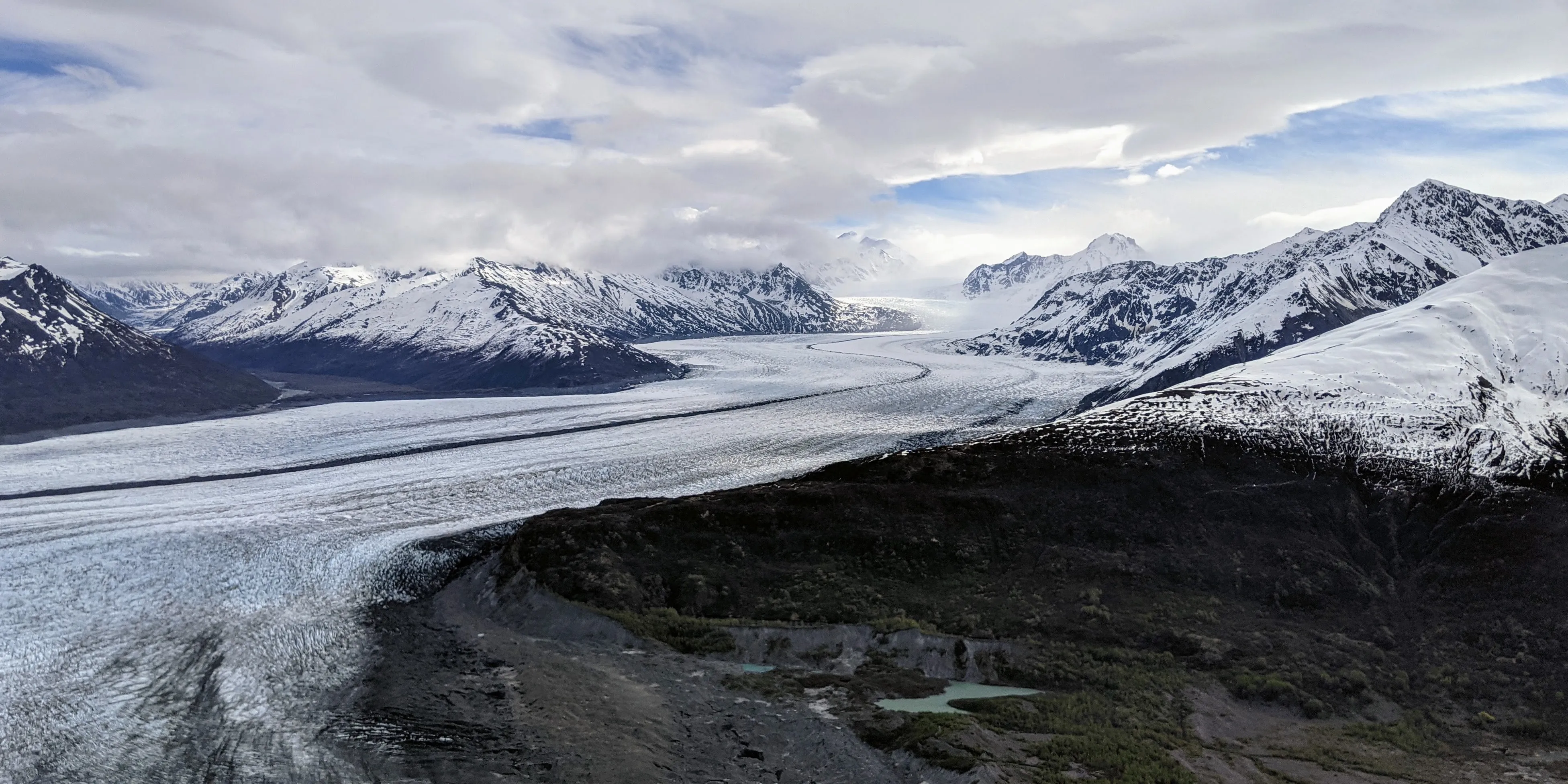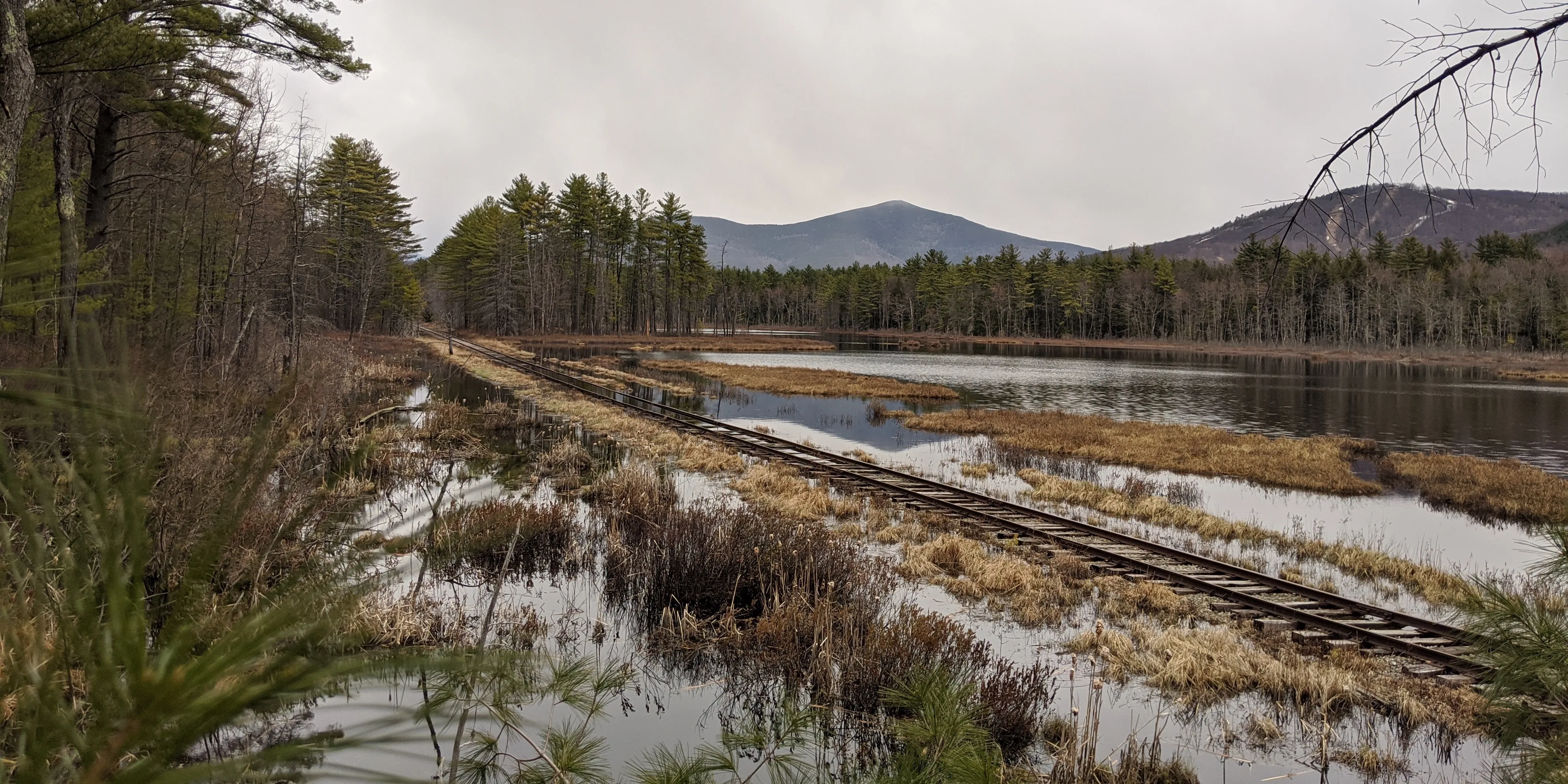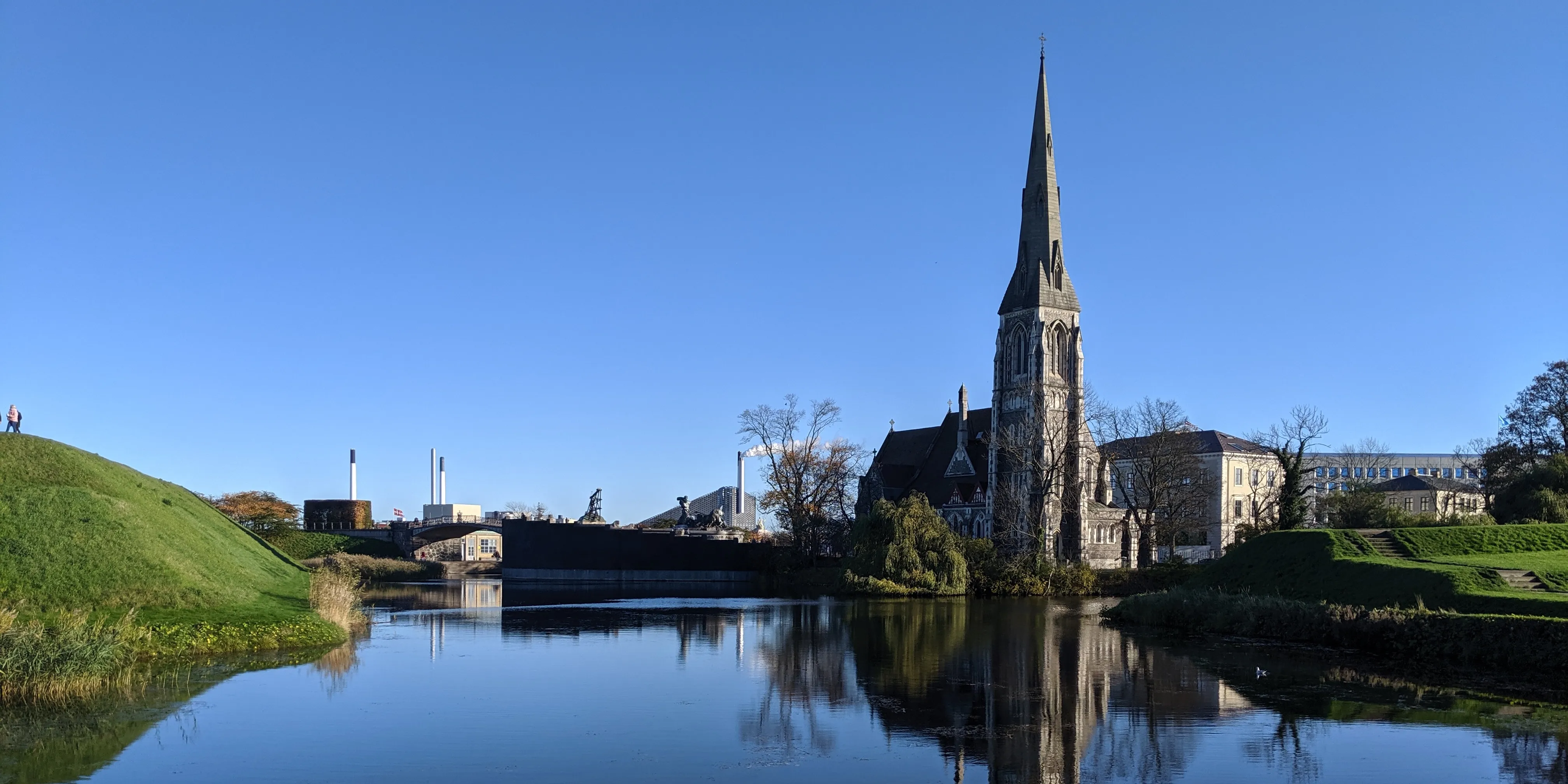Visiting Paris, Barcelona, Valencia, Seville, Madrid, and Toledo from Jun 2016 to Jul 2016.
In the summer after I graduated college, I took two months off, traveling across Europe. After spending two weeks in Italy and Croatia with friends, I went solo, traveling in France and Spain for just over two weeks. First, I spent ten days in Paris, staying at hostels and Airbnbs, and then I flew to Spain, where I spent a week traveling around the country by train.
Solo travel was completely new to me, and I’m really glad I got the opportunity to try it. In both France and Spain I entered the country with very few plans, and pretty much made it up as I went. It was liberating to have so few limitations imposed on me. (My only requirements were basic survival and general tourist pressure to see the Eiffel Tower.)
At first, this freedom was sort of uncomfortable. I felt the need to have a plan out full days and keep a strict schedule. But after a few days, I settled in to moving at my own speed, content to skip or extend stops depending on my mood.
Paris
An Artist’s Paradise
I loved being in Paris. I’m not sure if it was the city or just my mood, but my week in Paris was by far the most laid back part of my trip. I spent ten days wandering around the city, frequenting pastry shops, other restaurants, museums, and parks. The only thing I “had” to see was the Eiffel Tower, which was well worth the visit, despite my fear of being overly touristy. A more enterprising traveler could have easily seen what I saw of Paris and also had time for day trips to the countryside (I considered a few), but instead I went slow, taking time to appreciate everything the city had to offer.
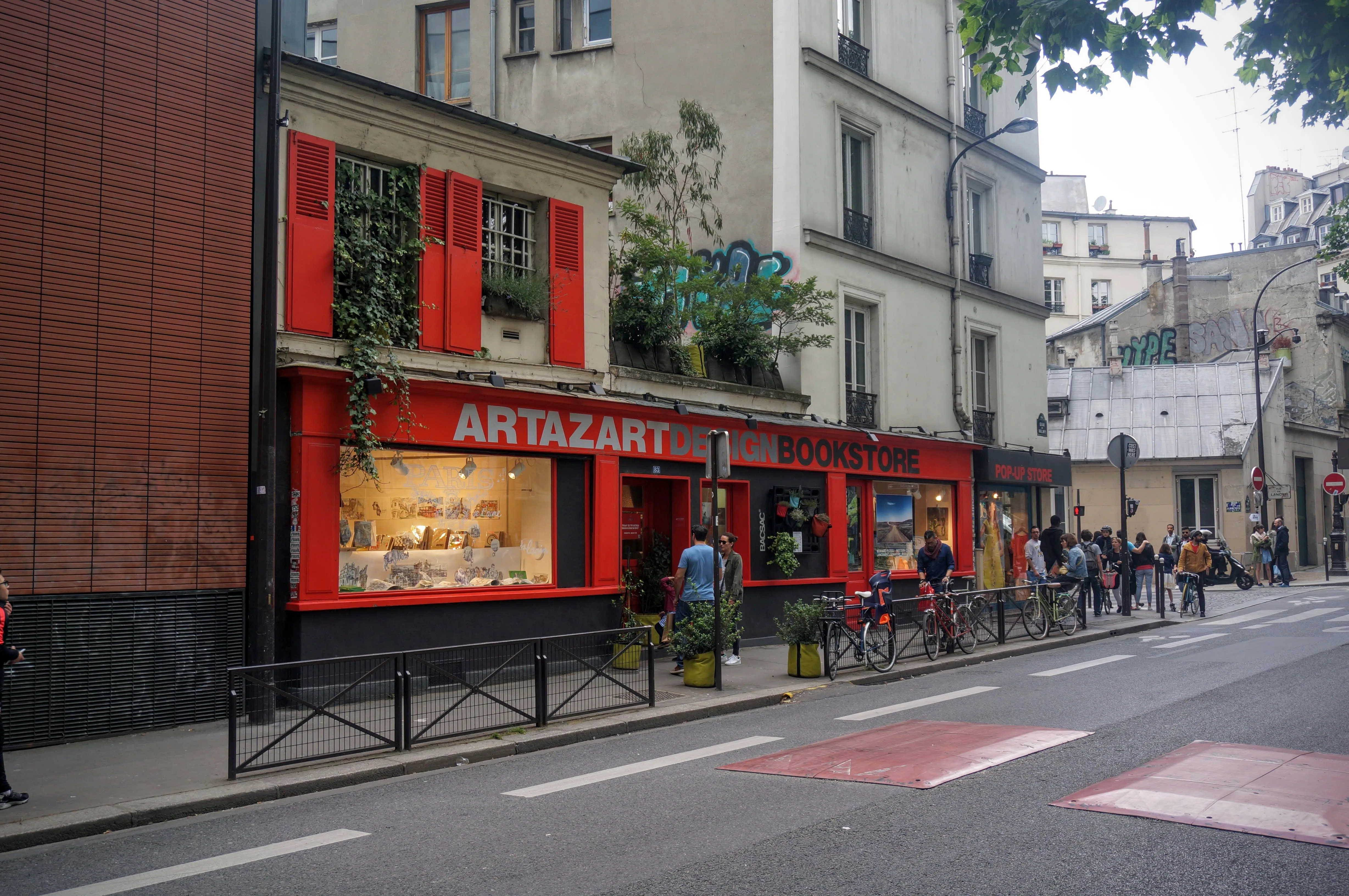
On my first day, I spent three hours flipping through books at Artazart, a design bookstore on the canal.
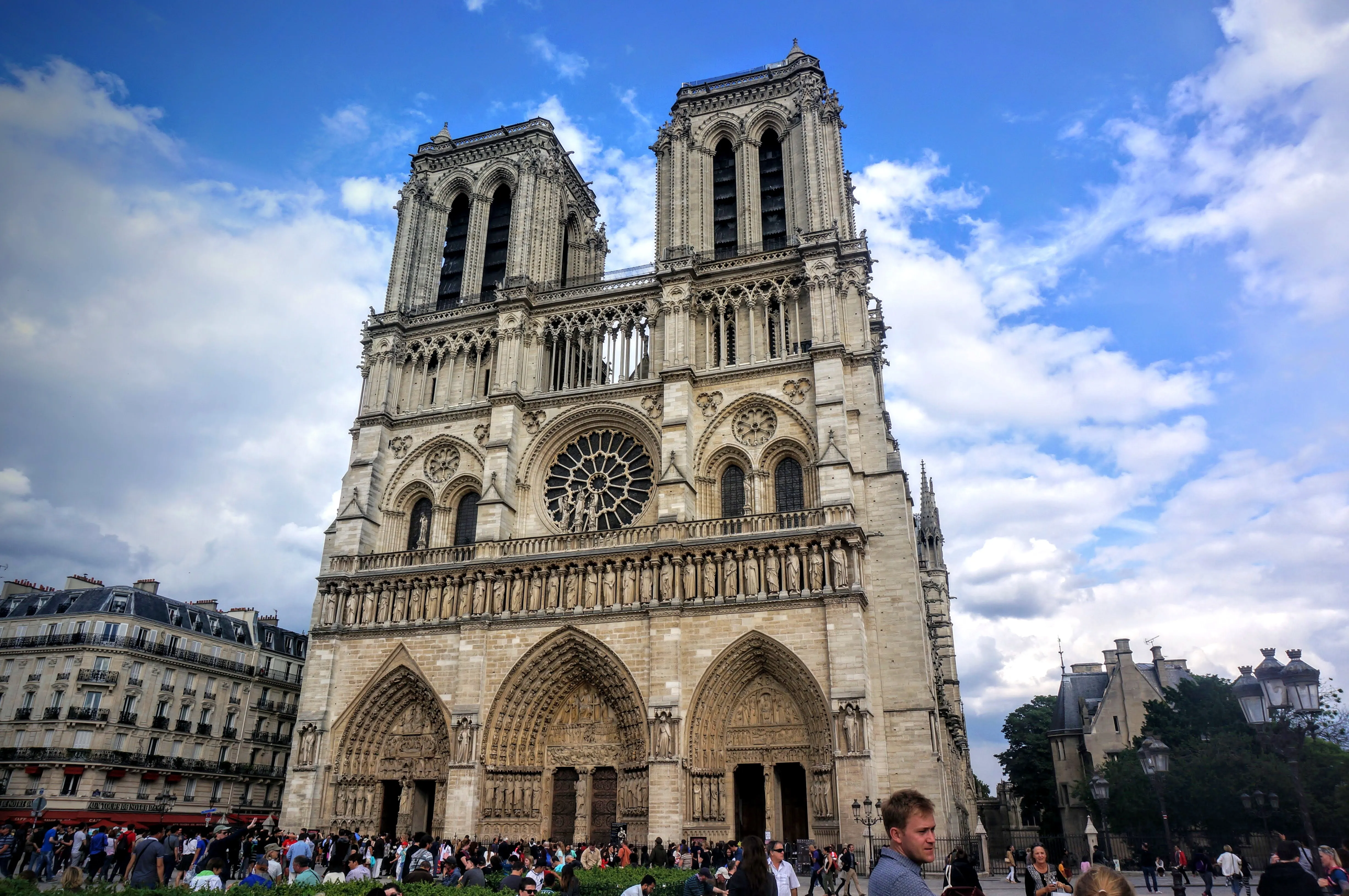
I wandered into the Notre-Dame Cathedral during 5pm mass completely accidentally. I'm not religious, but hearing the organ echo off the cathedral walls was an extremely powerful experience.
Left: The Eiffel Tower is bigger in real life than it seems in photos. Right: A view of the Champ de Mars from the top.
My only fully-scheduled day in Paris was my visit to the Louvre Museum. I decided early on that I wanted to spend an entire day there, as to not rush through any exhibits. I’m really glad that I did. There are a lot of museums about which people will say “Oh, you could spend an entire day there and still not see everything!” For the most part, this is exaggeration. But for the Louvre it’s absolutely true. It is one the most beautiful museums, with a collection that easily entertained me for an entire day.
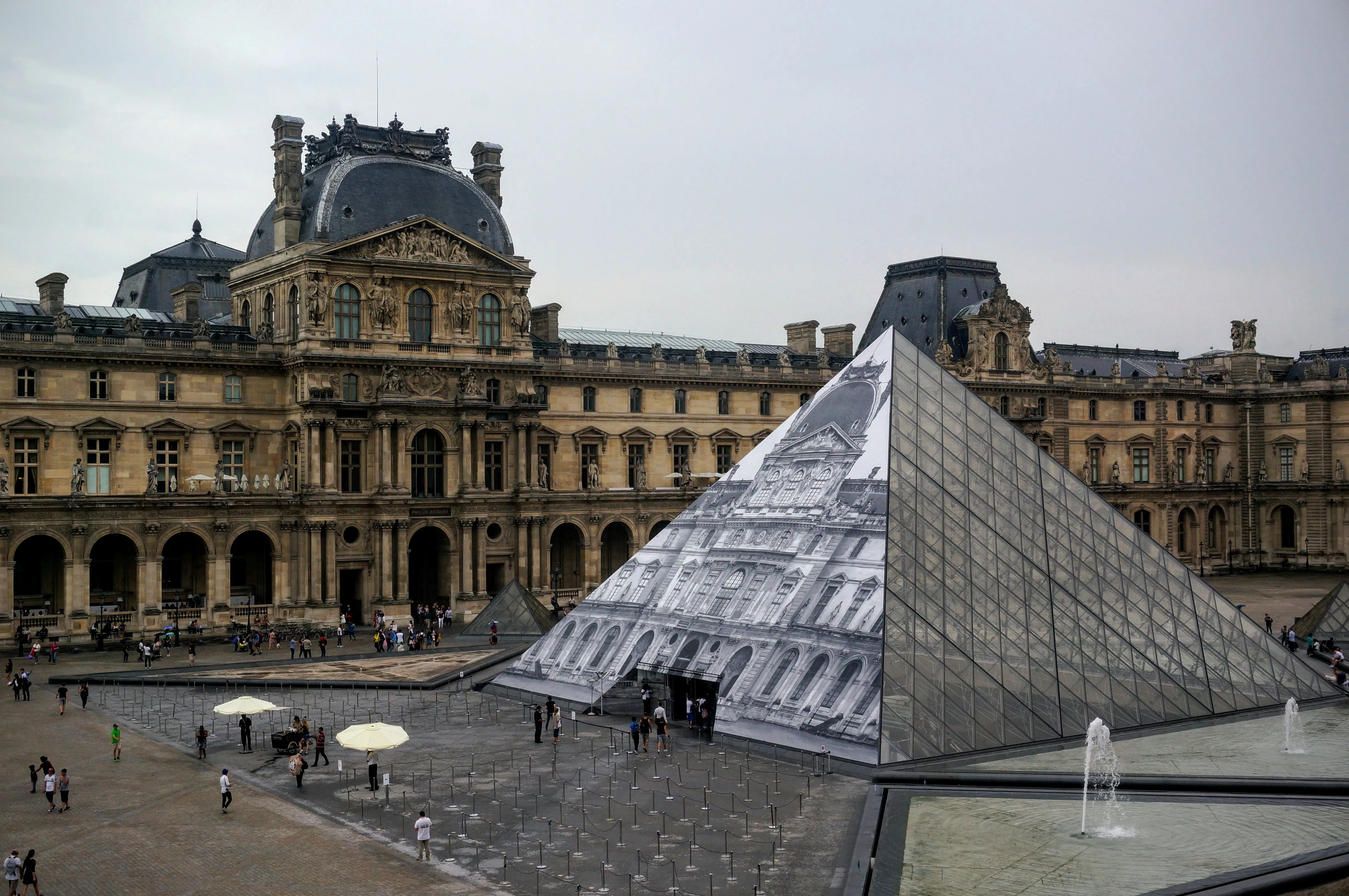
The Louvre's iconic glass pyramid is also it's main entrance, an escalator leading down to the underground lobby.
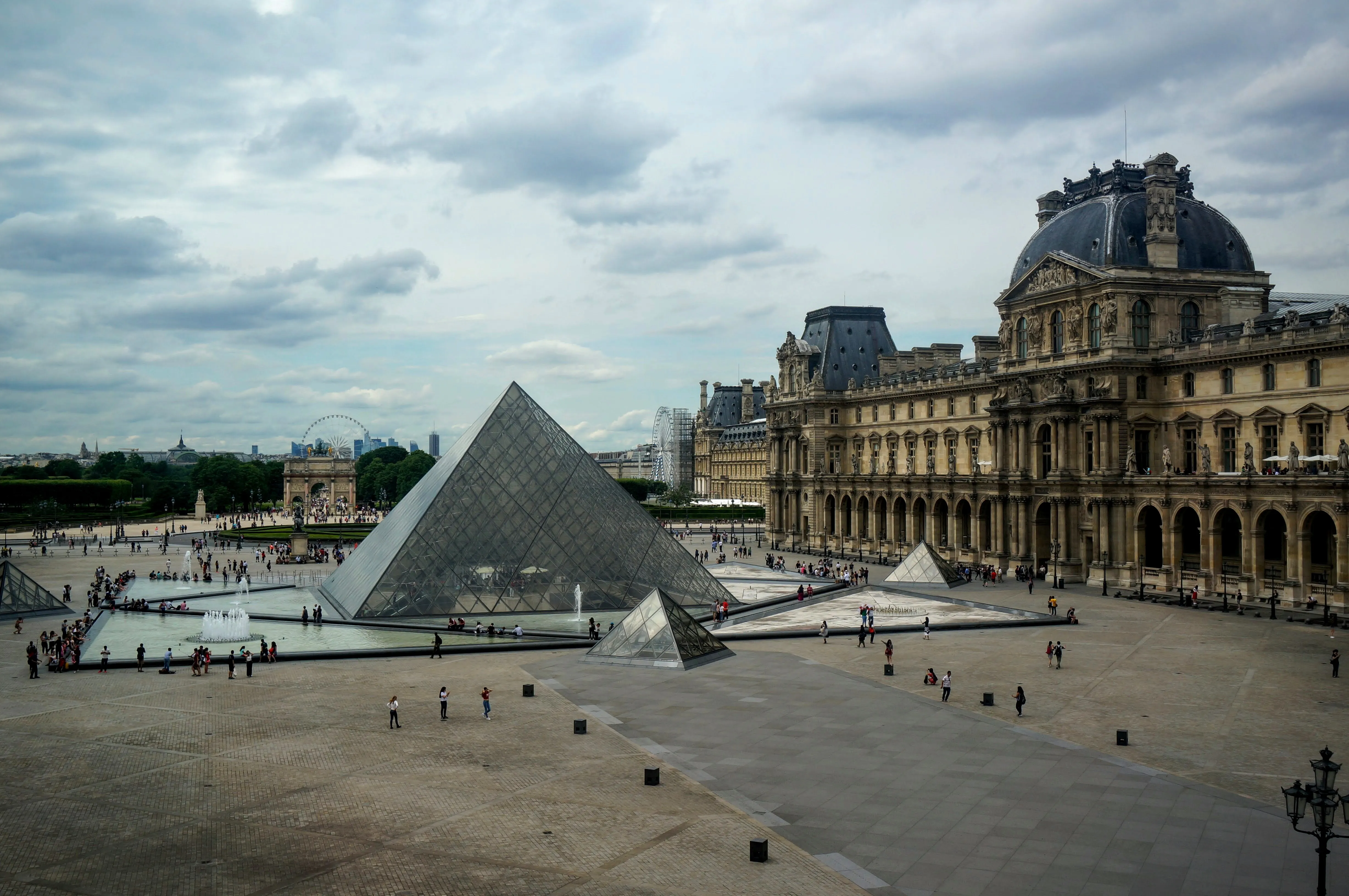
A view of the Louvre Pyramid from the rear, with the Big Wheel in the background.
I saw thousands of pieces of art across dozens of exhibits, across multiple styles and time periods. I’m especially a sucker for sculpture, and the Louvre didn’t disappoint. One of the most beautiful rooms in the entire museum was a three-story glassed-in courtyard where the majority of their Greek and Roman sculpture sits.
Left: The sculpture galleries are full of natural light. Right: These galleries feel outdoors, although they are glassed-in.
Just three of many sculptures that caught my eye. I especially love the baby, who is rocking a perfect face-palm.
Left: The Mona Lisa was smaller than expected. Right: This mousse was larger than expected. (Hand for scale!)
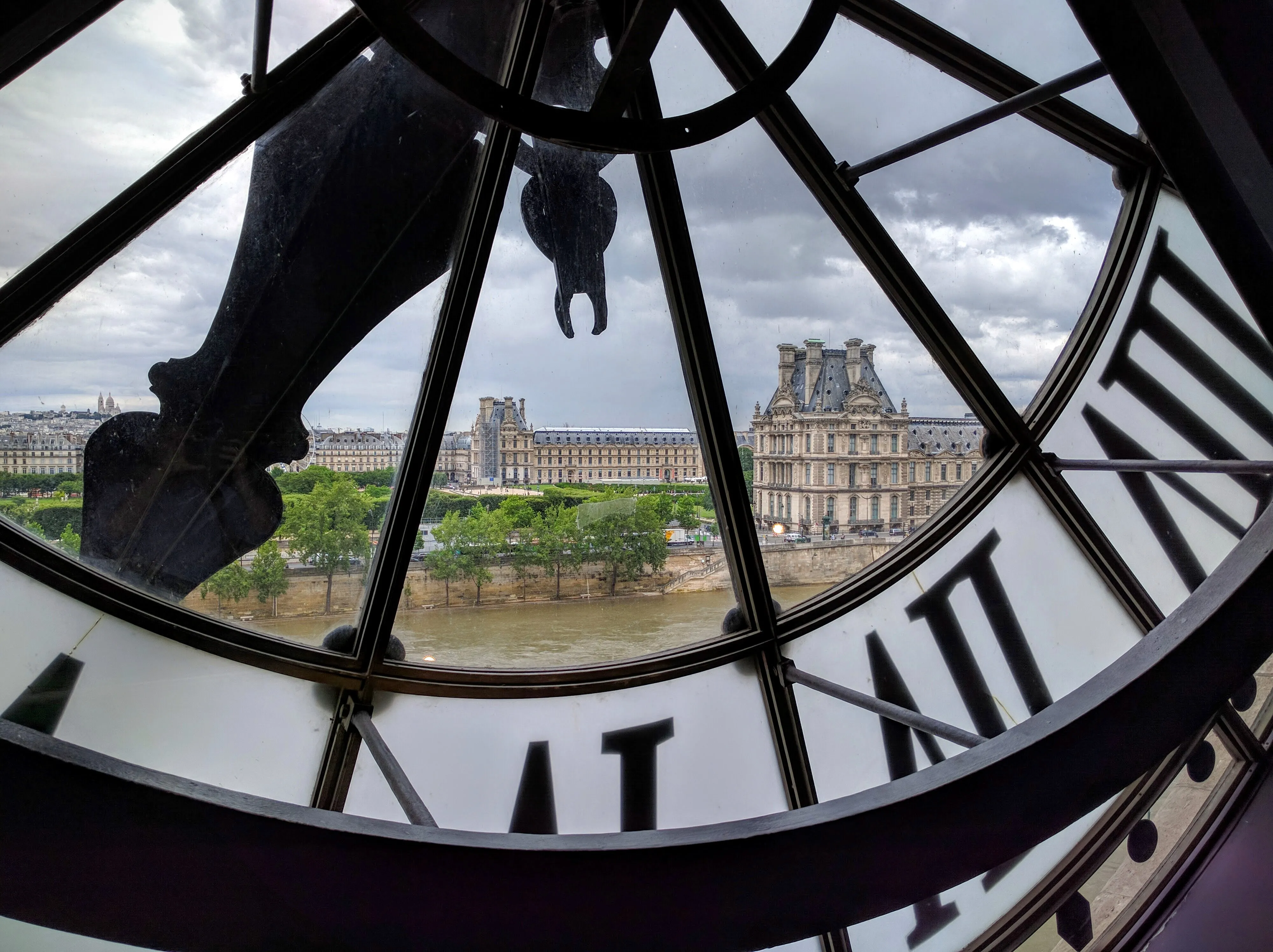
A view of the Louvre across the Seine river from the Musée d'Orsay.
Barcelona
My First Taste of Spain
After staying put for so long in Paris, I flew to Barcelona where I kicked off a 10-day train trip around Spain. I spent two nights in Barcelona, one in Valencia, three in Seville, and five in Madrid with a day trip to Toledo. With so little time in each city, I definitely didn’t get to do them justice, but I glad to get a feel for each city.
Barcelona was very upbeat and lively. I didn’t spend any time at the beach, but I would have if I had stayed longer. With my time allotted, I managed to visit a few museums and landmarks I was looking forward to.
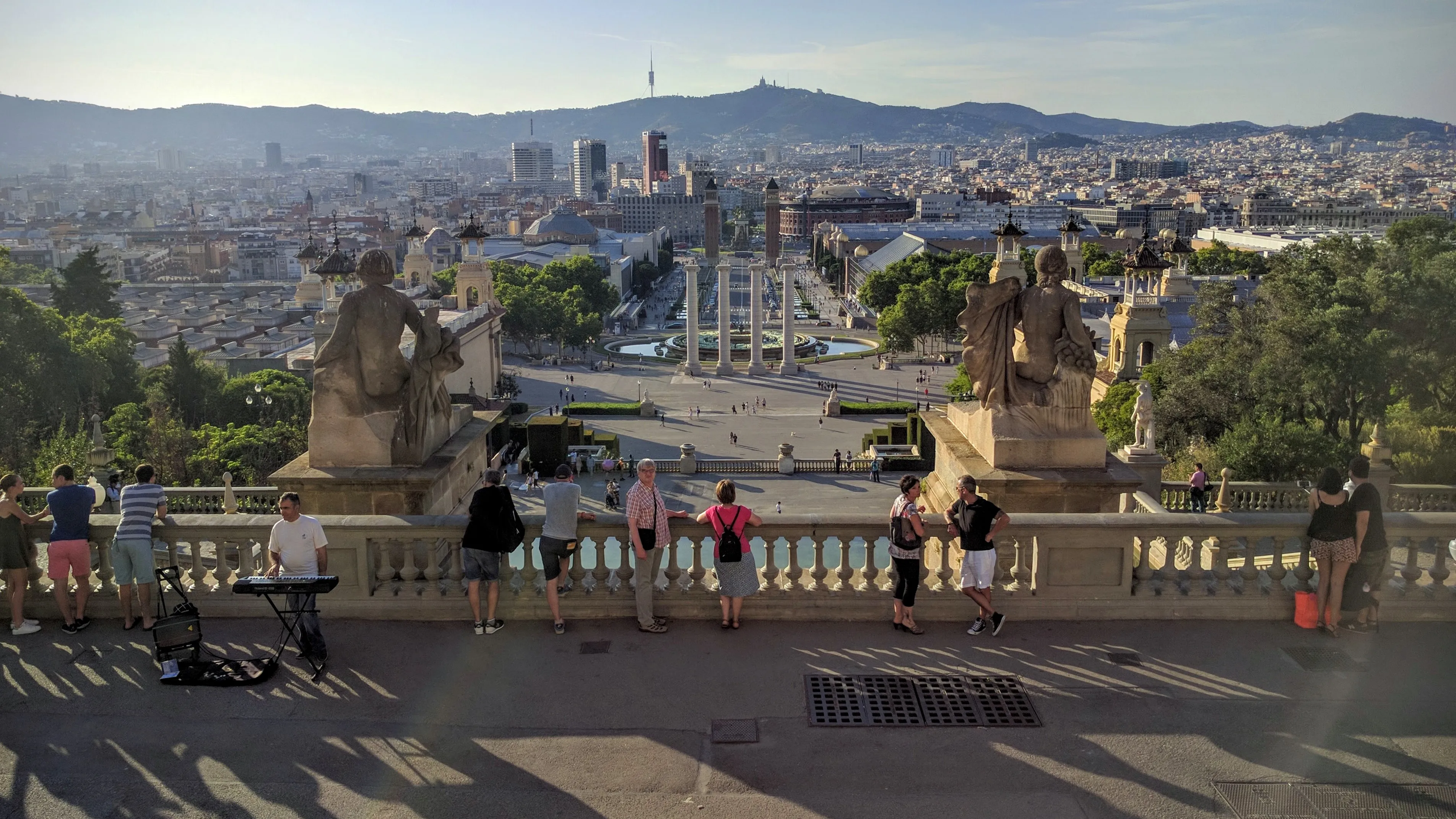
I climbed up the stairs from the Plaça Espanya to see the National museum (and get this shot).
Left: A view of the National Museum. Right: Quintessential Barcelonean tapas.
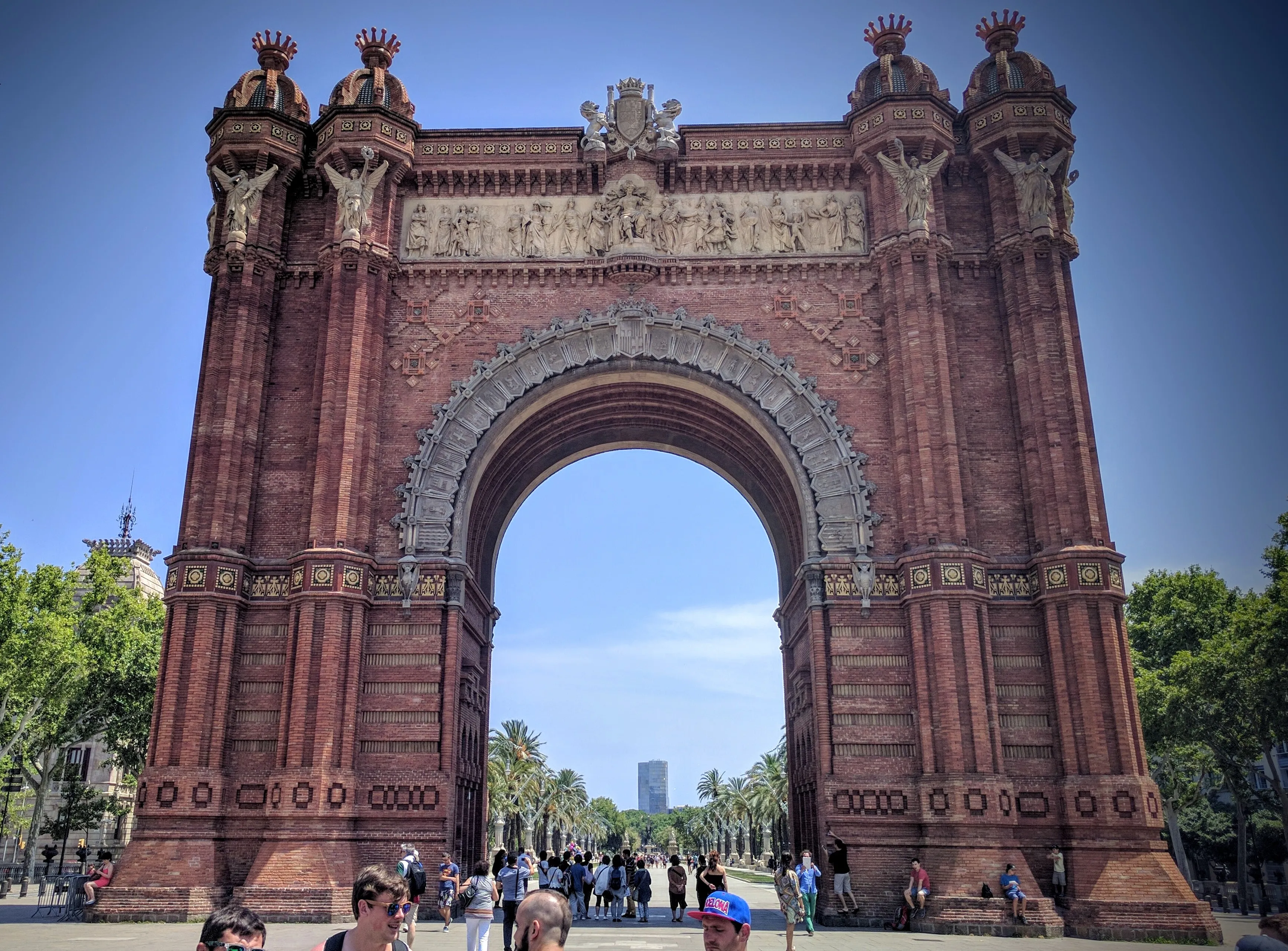
On my second day, went for a walk through the Arc de Triomf into Parc de la Ciutadella.
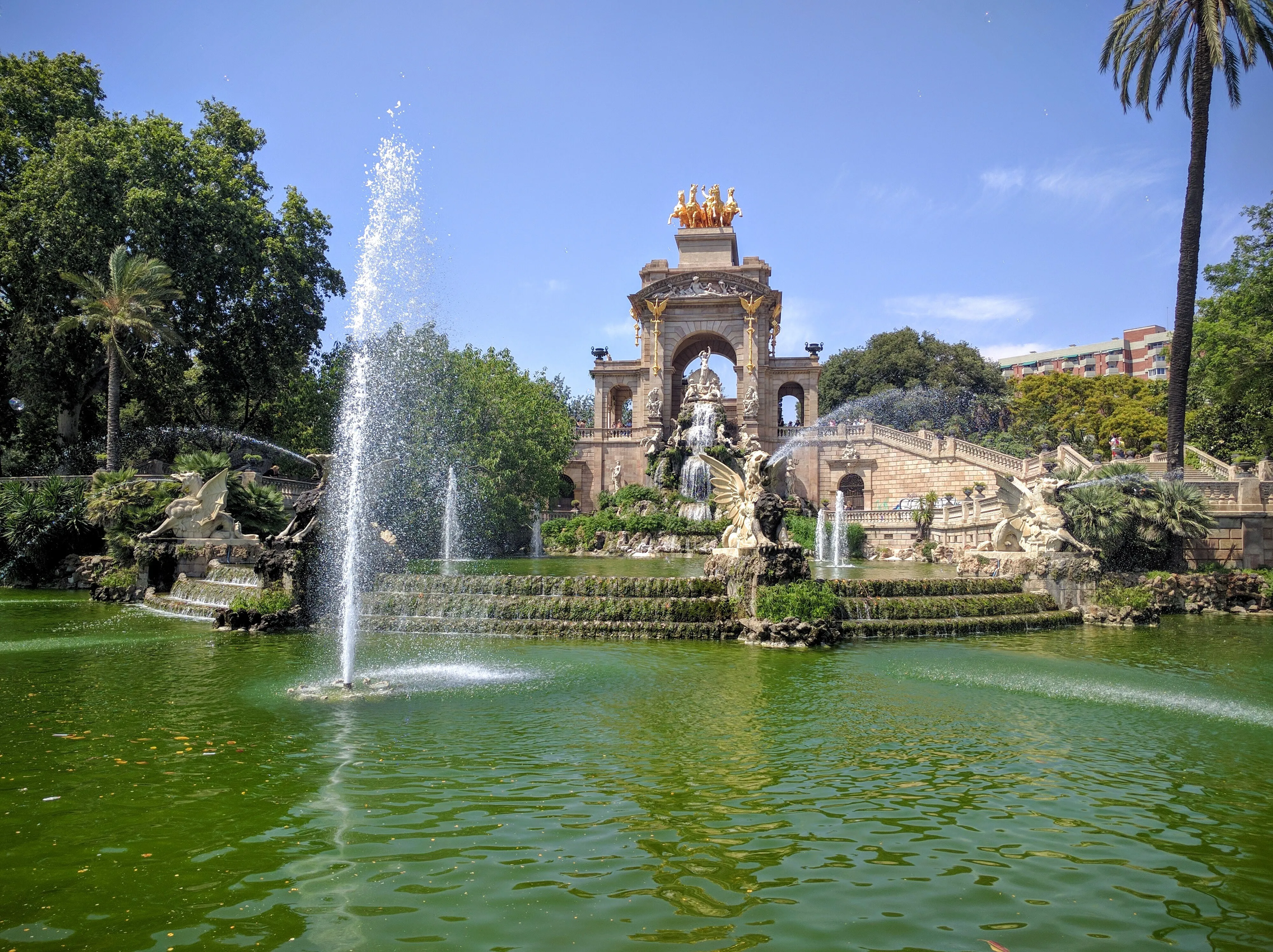
Hidden away in the park, I found this beautiful pool and water feature.
Valencia
A Glimpse of the Future
I can barely say in good conscience that I really visited Valencia. I was only in town for one night, and with my train schedule, I didn’t get in early enough to get into the one place I intended on visiting: The City of Arts and Sciences. Unfortunately, I didn’t get there in time to see the inside of the Museum, but I was able to tour this amazing set of buildings.
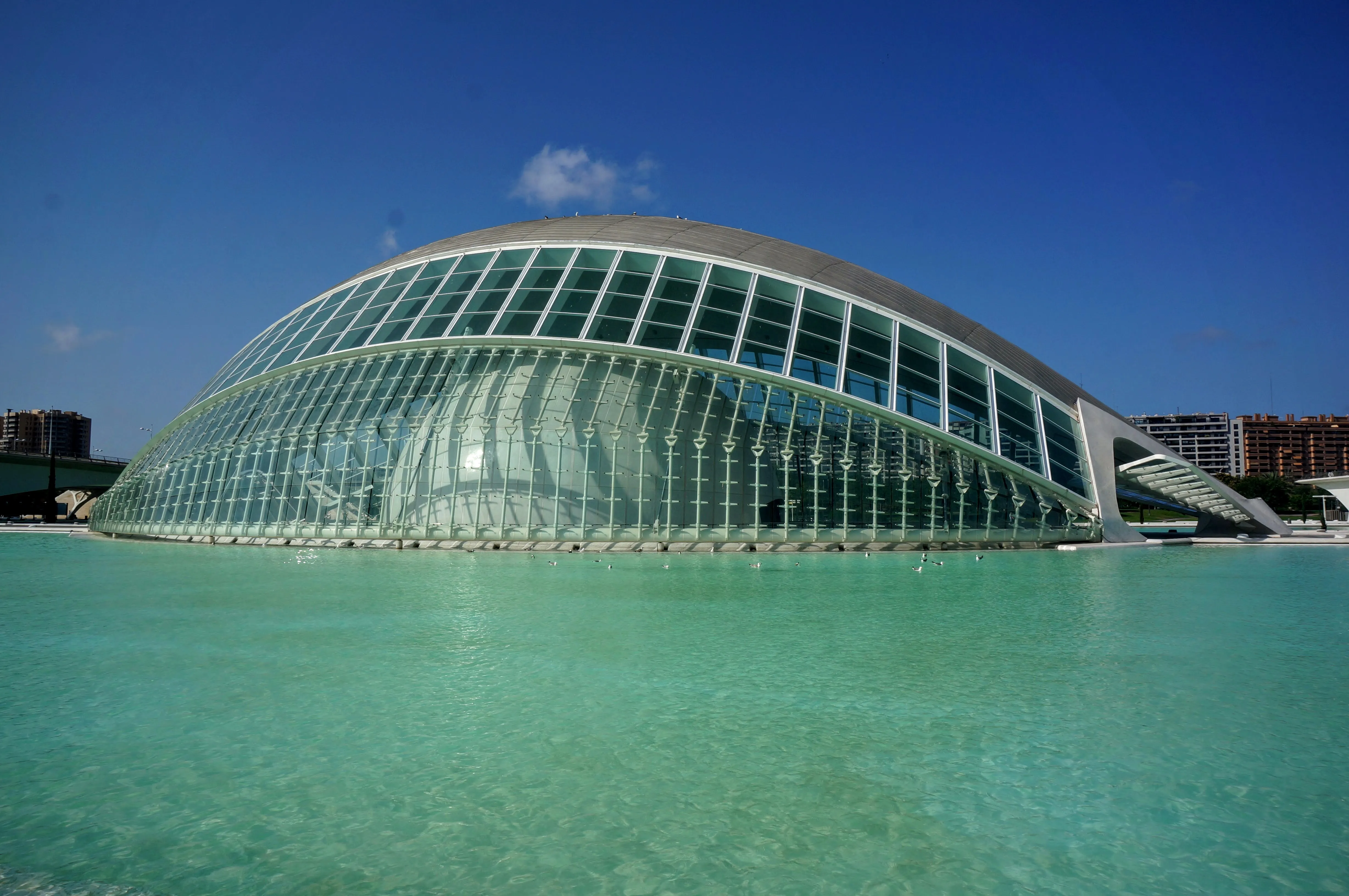
This crazy spiny building is actually a hemispheric iMax theater.
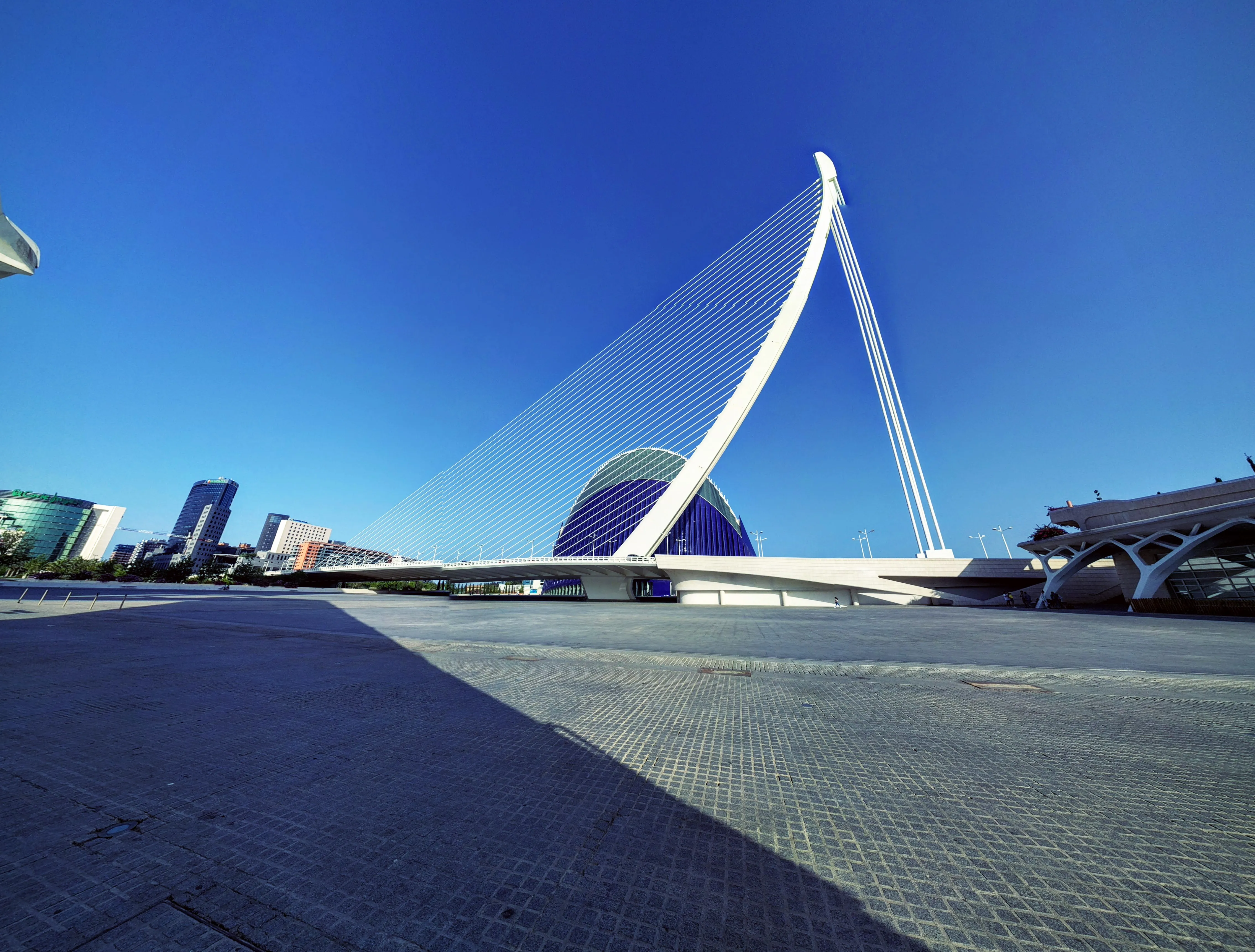
This beautiful suspension bridge sits next to the City of Arts and Sciences.
Left: The spiny science museum sits next to a beautiful pool. Right: The Berklee College of Music Valencia Campus.
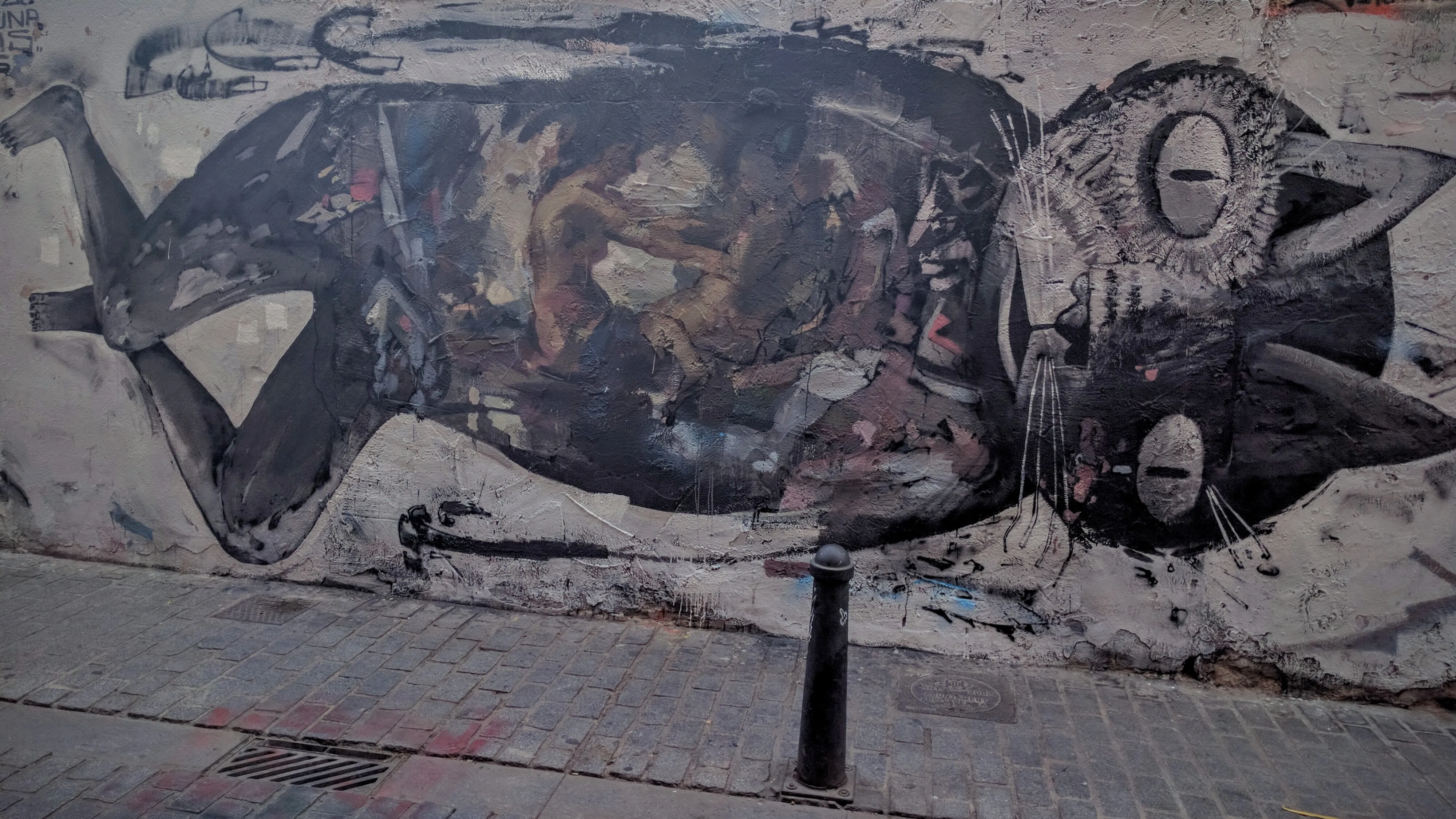
I found this striking piece of graffiti art walking along an alley in Valencia.
Seville
Religious History in Architecture
After my night in Valencia, I took the high speed train to Seville, for what was definitely my favorite stop in Spain. Seville is an amazing city with a perfect balance of beautiful architecture and sight-seeing and great bars and tapas restaurants. I was lucky to find a great hostel, where my hosts connected us to a free walking tour of the city, took us out to bars, and gave us tips on the best places to eat. I was only in Seville for two days, which wasn’t nearly enough.
Our guide explained how over the course of Seville’s history, it was under control of Christian, Islamic, and Jewish communities, and the architectures of these religions are all visible across the city. As different communities took over the city, they found the old architecture so beautiful that they would leave it and convert or adapt it to their own purposes. This intersection of cultures forms the Mudéjar architectural style.
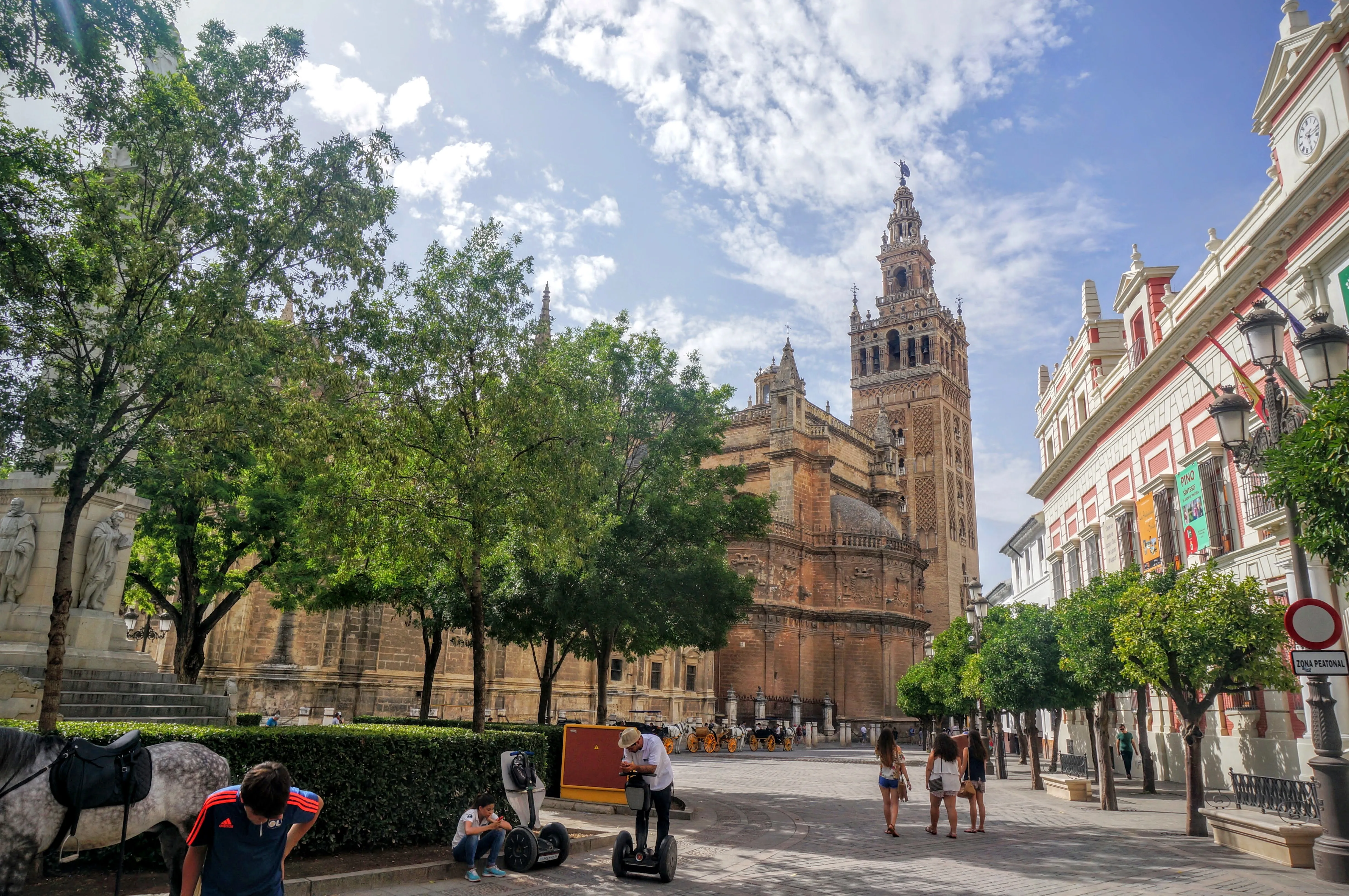
La Catedral de Sevilla is a beautiful Christian church, which is attached to La Giralda, a Muslim-built clock tower.
The prime example of Moorish architecture in Seville is the Royal Alcázar, a 16th-century royal palace with a completely tiled interior and beautiful walled-in garden. Exploring all the different rooms of the palace and all of the different corners of the garden took hours. There are signs of Christian, Islamic, and Jewish influence in the palace design.
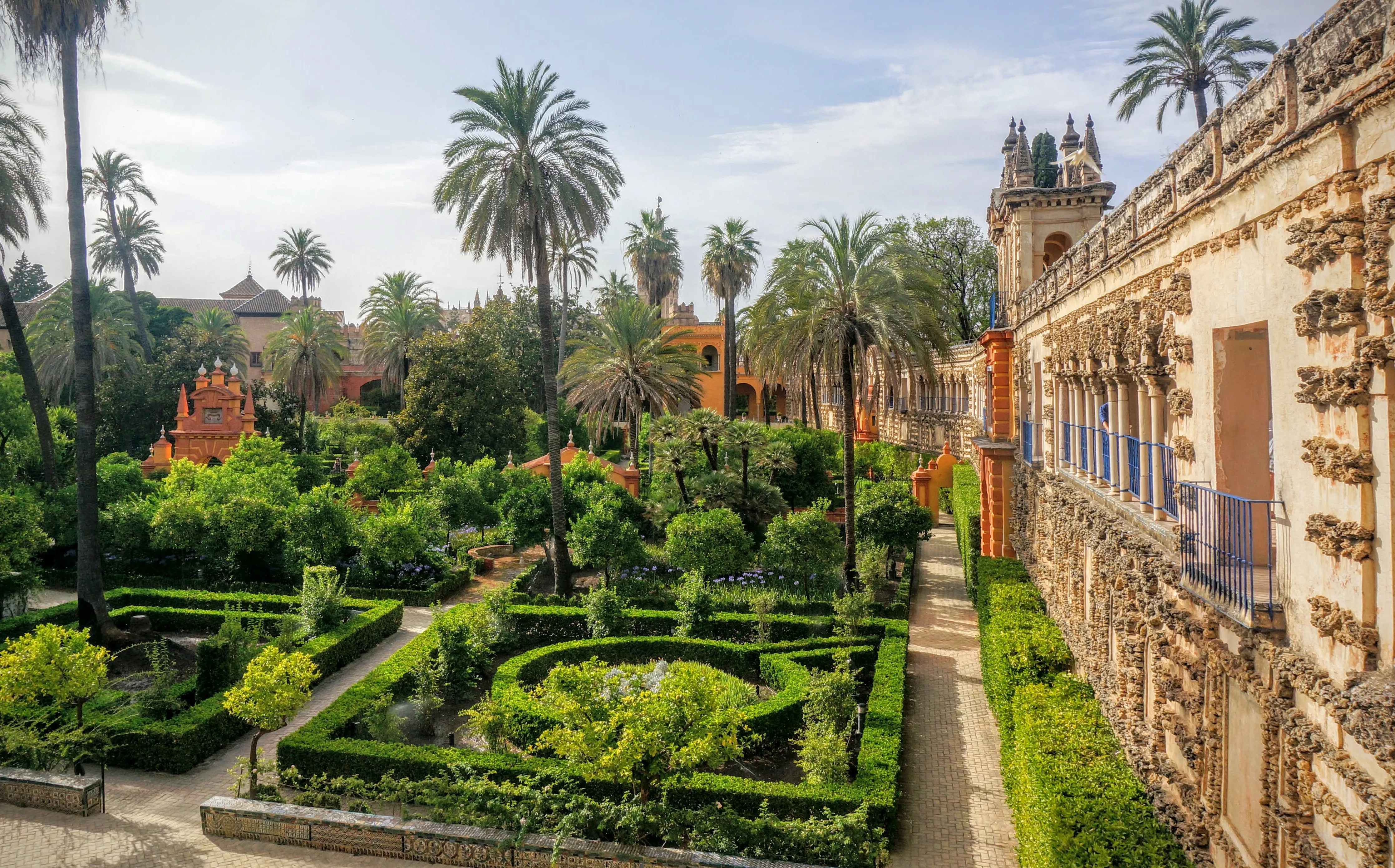
A wide shot of the central garden. All of the trees, shrubs, and flowers are all meticulously manicured.
Left: The garden walls feature beautiful ornamentation. Right: This metallic sculpture sits in the middle of a pool.
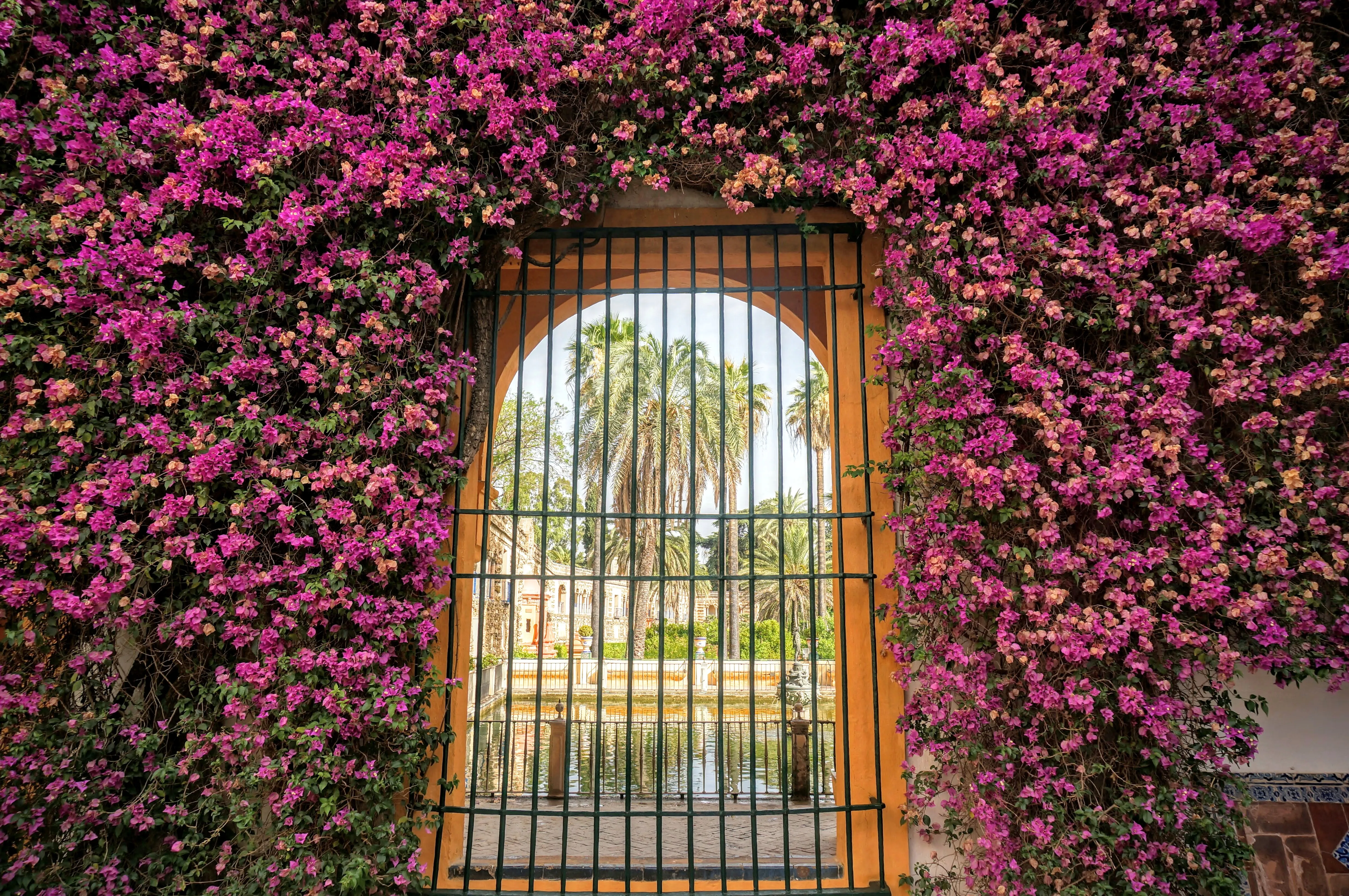
I couldn't get enough of these beautiful vines that covered many of the Alcázar walls.
Left: These beautiful purple flowers covered the central garden. Right: Me on the palace walls.
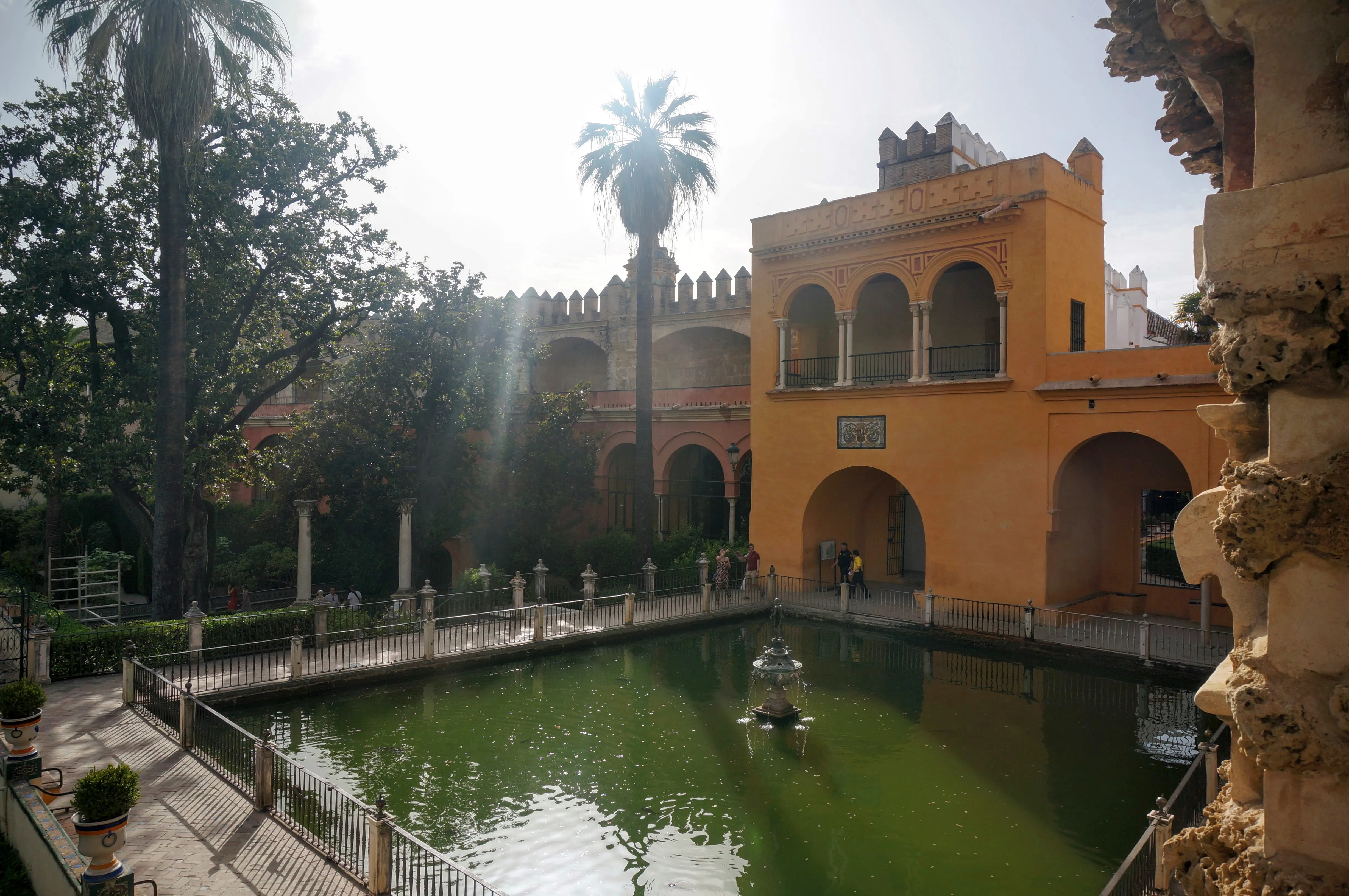
The Alcázar gardens include many water features, including this raised pool.
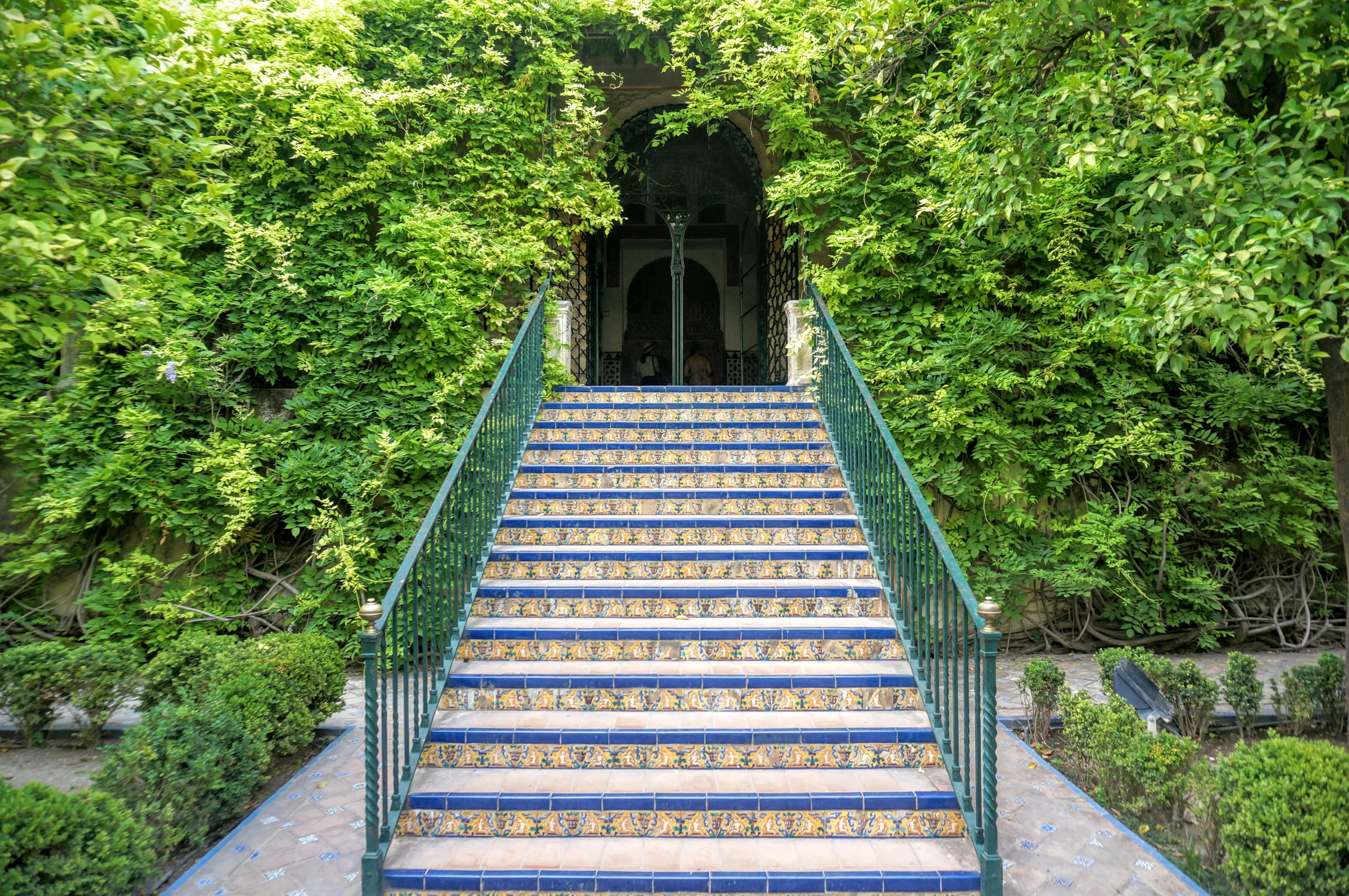
One of many entrances to the palace from the gardens.
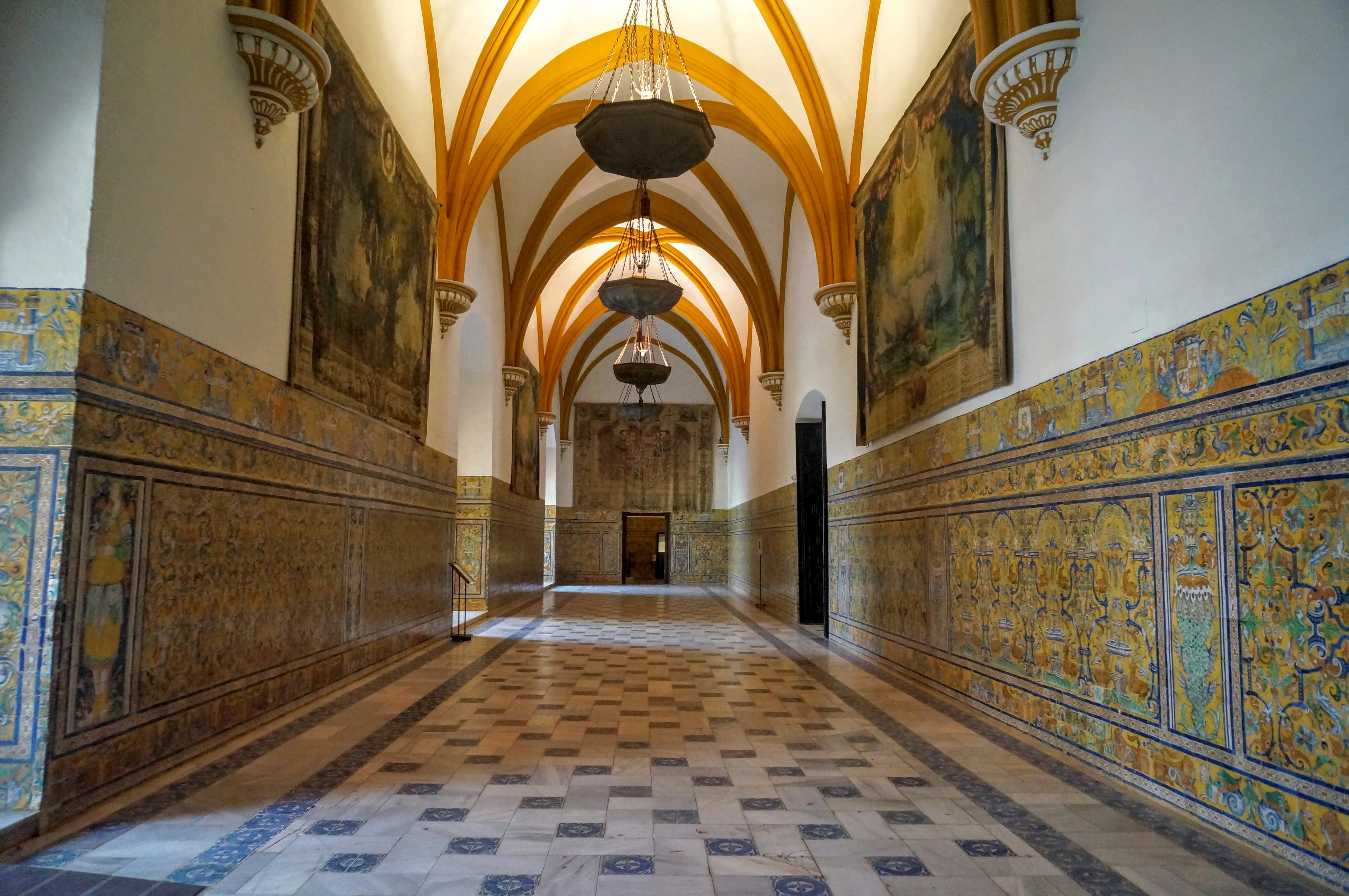
The palace was covered with tiles, tapestries, and other art. this hallway was one of the few rooms that didn't have tiles on the floor, walls, and ceiling.
Each room in the palace had a different tiling treatment. These are just five of the hundreds of different variations.
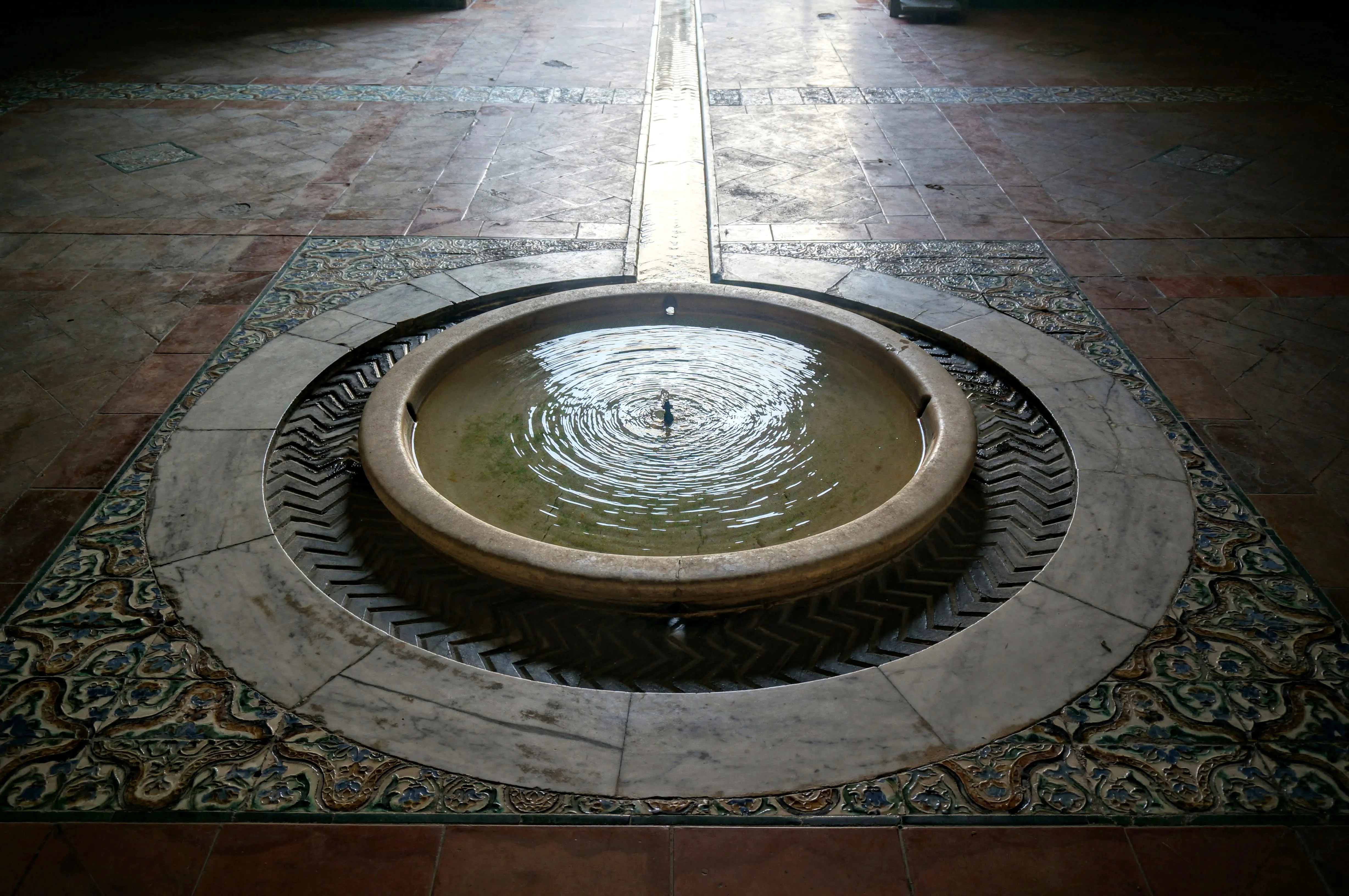
This small fountain pours water into a channel that leads outside.
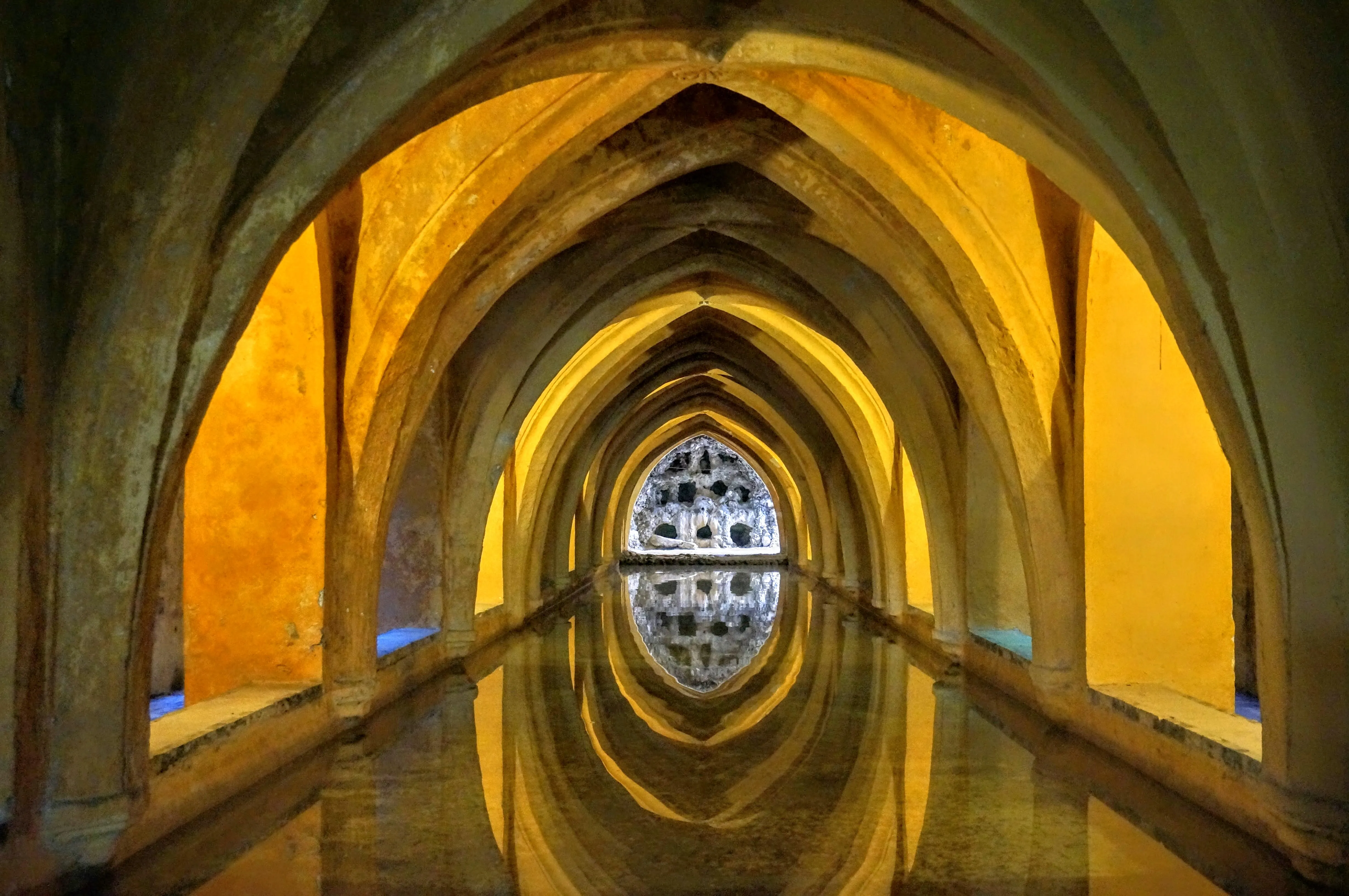
This long swimming pool sits in the basement of the Royal Alcázar.
If the Royal Alcázar is the symbol of religious power in Seville, the Plaza de España is the symbol of the public and it’s ties to Spain. This massive plaza opens up into the Parque de María Luisa, a huge recreational park. This magnificent building forms a semicircle around a central fountain, and it’s walls are decorated with tile illustrations of each of Spain’s provinces.

A panoramic view of the Plaza de España.
Left: The main facade of the building. Right: The pure scale of the plaza is amazing.
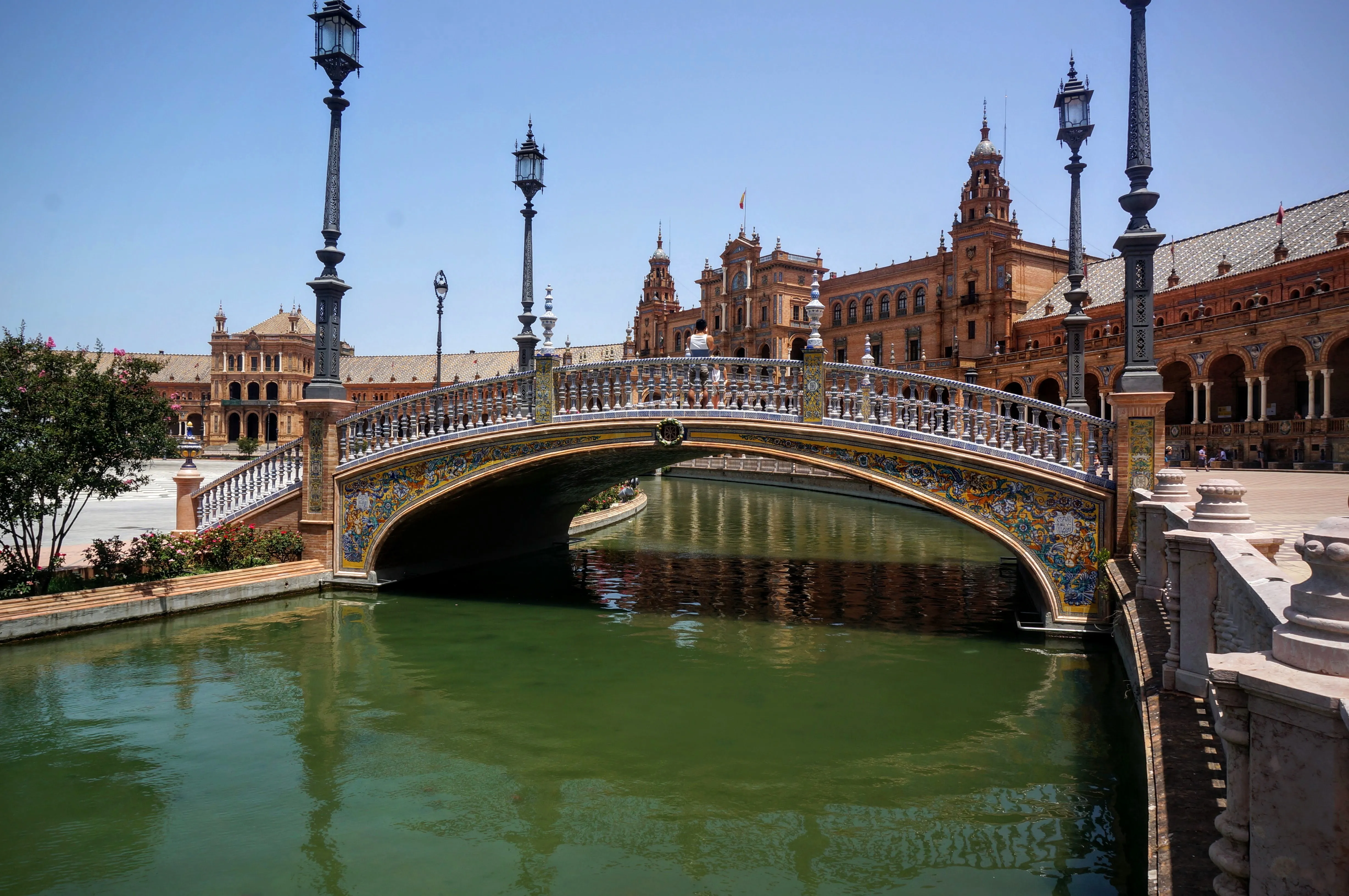
I love the beautifully decorated bridges that connect the central fountain to the surrounding building and walkway.
Madrid
The New Capital
After leaving Seville, I headed to Madrid, Spain’s capital. By the time I got to Spain, I was pretty spent. I didn’t get a chance to check out any of Madrid’s nightlife or party scene, although I’ve heard great things. Next time! What I did get to enjoy was a young, modern city. Everything felt recent, from the statues to the plazas to the churches.
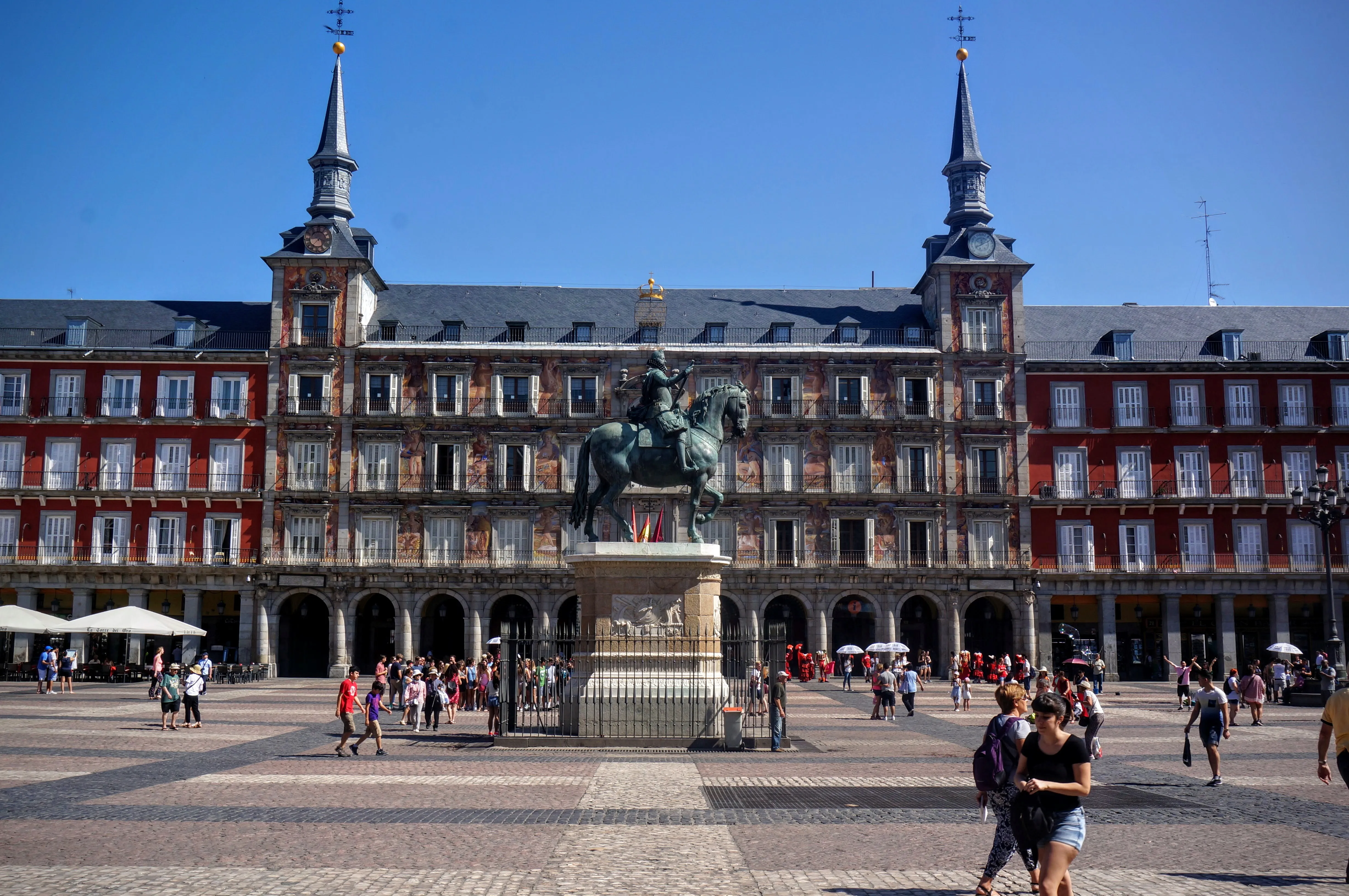
The horseman in the center of Plaza Mayor, the main plaza in Madrid.
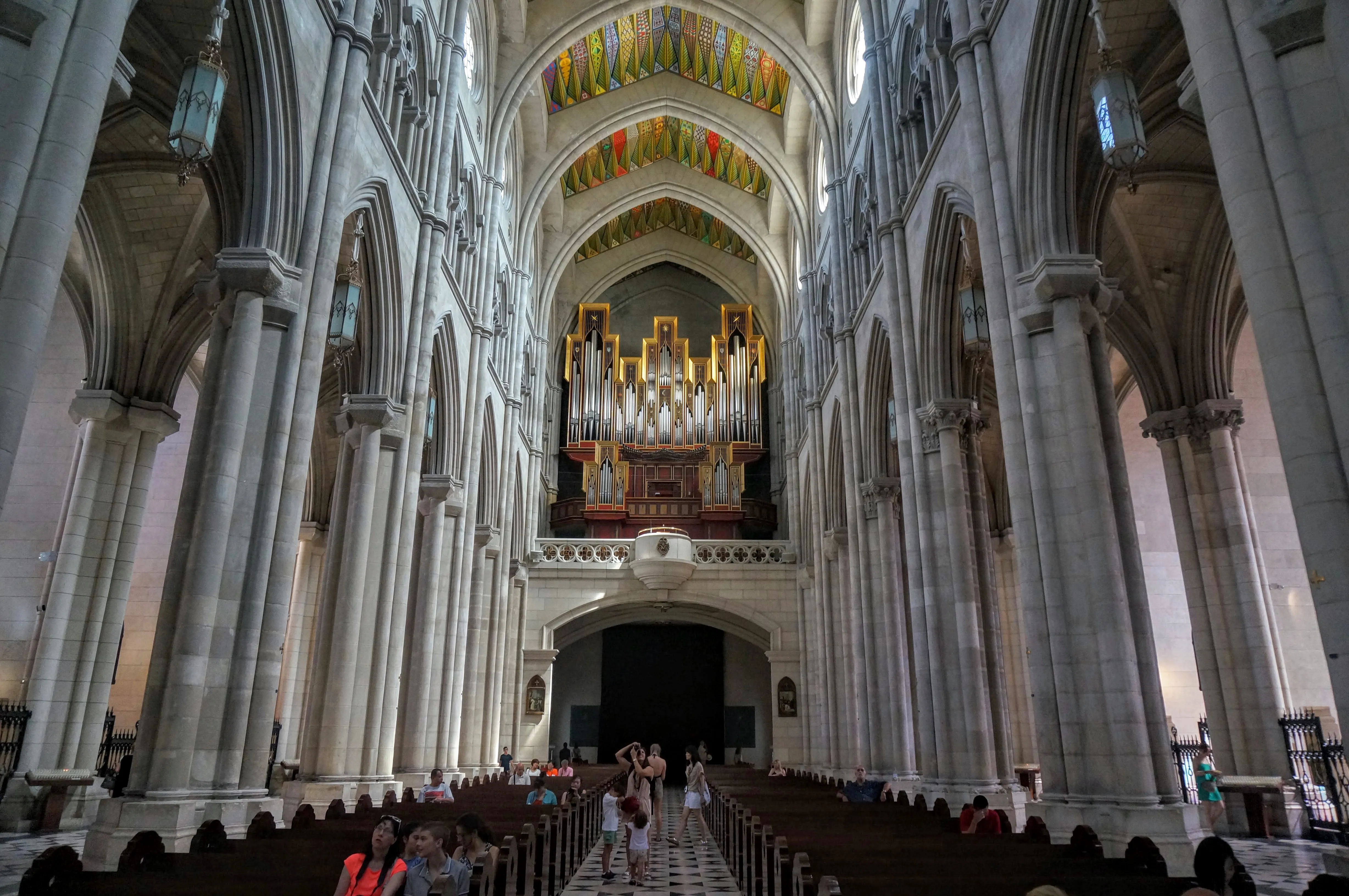
This Madrid cathedral puts a modern spin on the traditional Gothic style.
Toledo
The Old Capital
While staying in Madrid, I took a day trip to Toledo, the old capital of Spain. Just an hour by train outside of Madrid, Toledo is a city on a hill, located in a bend of the Tajo river. Toledo has amazing tiny streets that wind through the buildings to form an intricate maze.
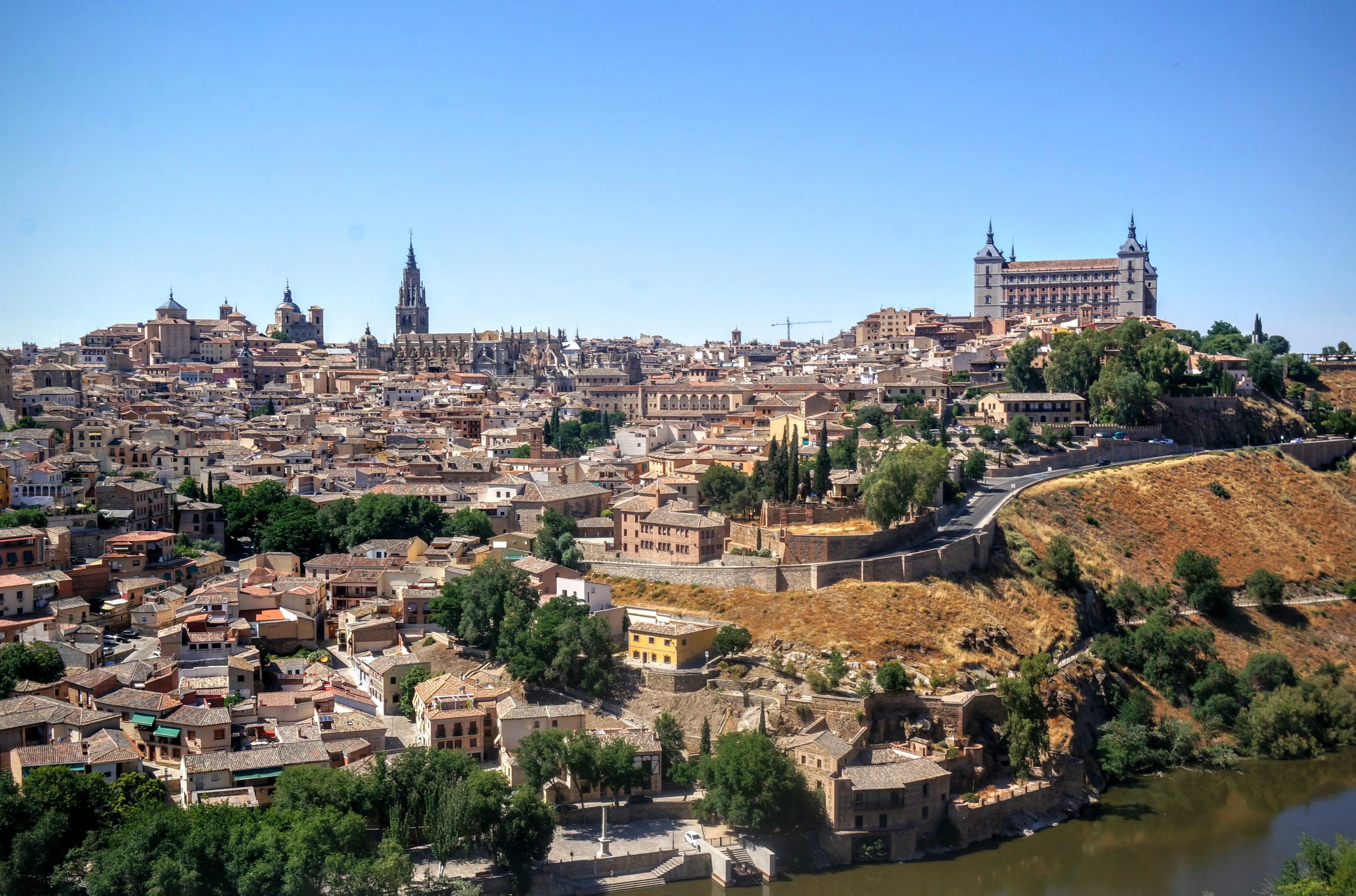
A view of Toledo from the surrounding cliff side.
Left: Light comes in through a hole in the ceiling in El Transparente, a beautiful altarpiece in the rear of the Toledo Cathedral, ornamented with angels and heavenly imagery. Right: The light strikes the altar on the opposite wall.
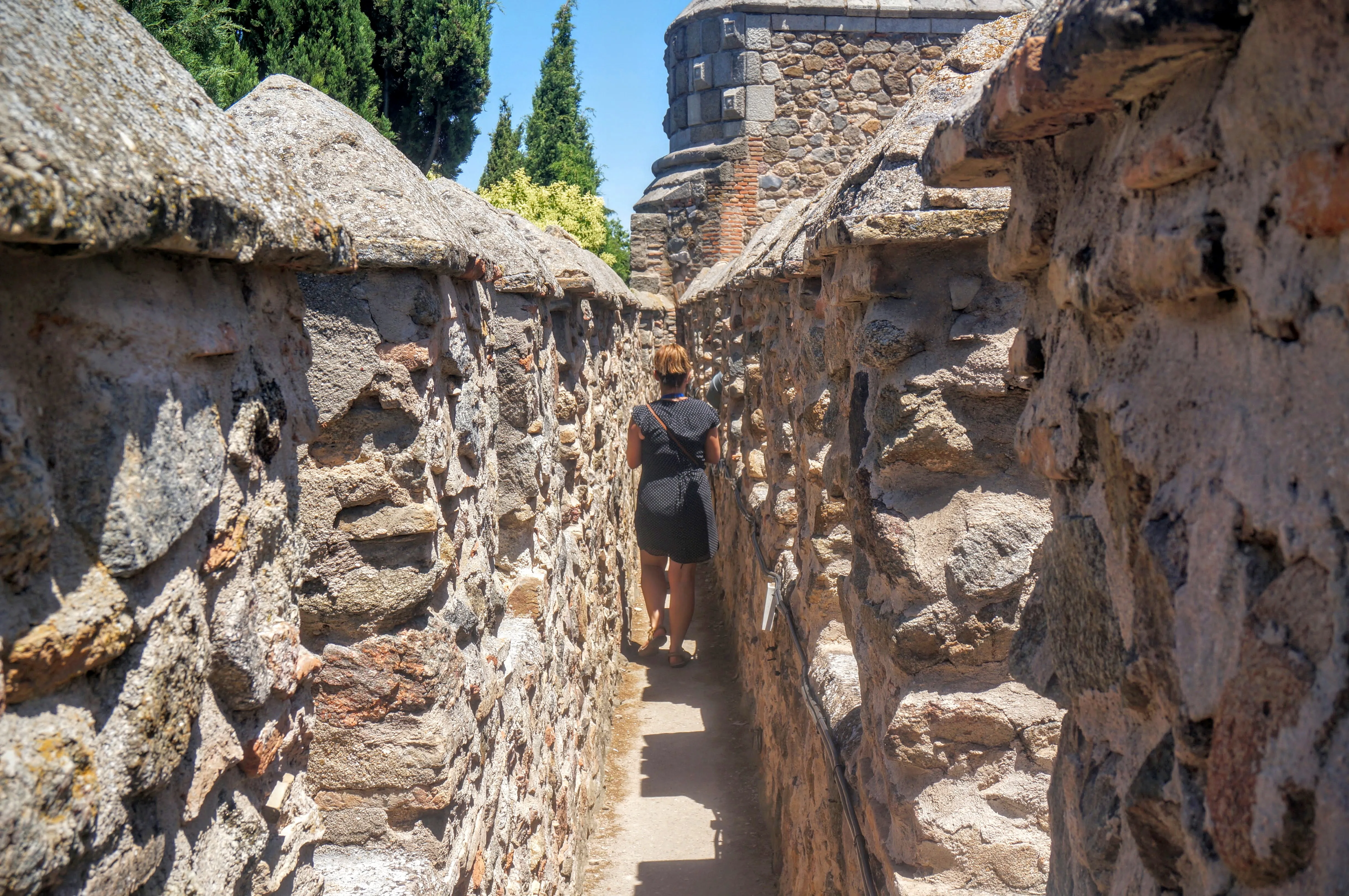
I took a tour of the city walls, which required making my way down along these narrow walkways.
Left: A characteristic Toledo street: narrow with lots of sharp turns. Right: A window overlooking an ally.
